Ham-fisted

NUS has failed to protect Jewish students for 17 years, report finds

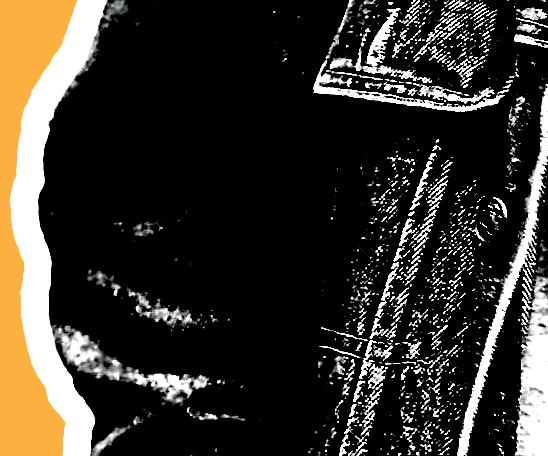



NUS has failed to protect Jewish students for 17 years, report finds









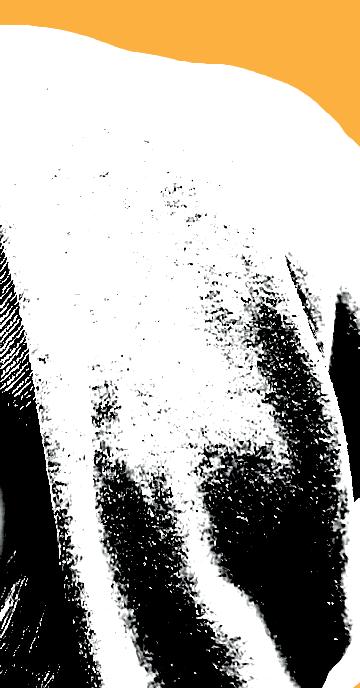

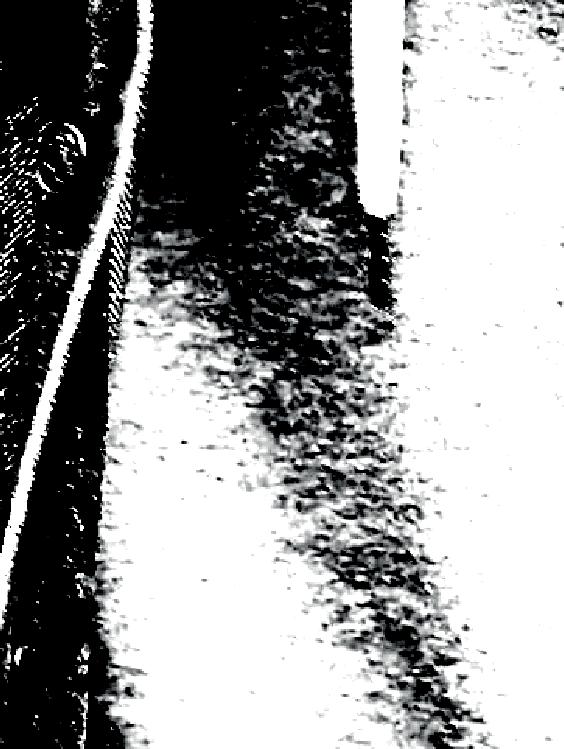



For the 8,500+ Jewish Students at universities across the UK, University Jewish Chaplaincy is the safe-haven, the constant, the home-away from home that these young people rely on.
Readjusting to life after Covid coupled with the ever present concern of rising incidents of antisemitism on campus, students need our help now more than ever. Please donate generously this weekend to support the work of our 19 Chaplains and Chaplaincy couples at universities across the UK.

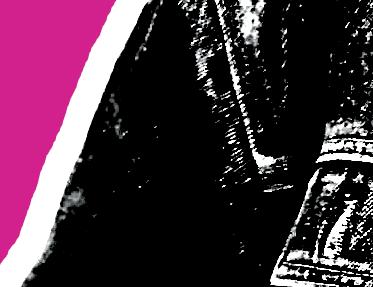
Thank you.






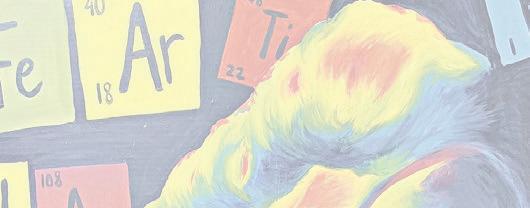




Most Jews who live outside Israel think thrice before criticising it – and for good reason. Many, this newspaper included, have deeprooted ties to the tiny Jewish-led democracy surrounded by oppressive dictatorships that despise it.




As with the central argument against Prince Harry right now, you don’t criticise your own in public, not unless you simply must. In private, fine, but not in public. In public, you show a united front, even if all is far from well behind the scenes. When Israel’s most revered judge o ers himself before a firing squad if it will
stop a now-rapid descent into autocracy, as he did this week, you know all is not well in the Jewish state.
Former Supreme Court president Aharon Barak has laid bare the extent to which Israel’s new government is fast dissolving the most fundamentally democratic elements of the state apparatus.

A land’s highest court is there to stop executive overreach. In the UK, it did so when Boris Johnson sought to prorogue parliament over Brexit. In the United States, it did so when Donald Trump tried to ban ‘Muslim’ Continued on page 14


Israel convinced the United States that Islamic Revolutionary Guard Corp leader Qassem Soleimani posed an “immediate threat” to American soldiers, former Israeli military intelligence chief Tamir Hayman has told Jewish News in an exclusive interview, writes Jotam Confino
Three years ago, US airstrikes killed IRGC leader Soleimani in Iraq, leading to a near-all-out war between Tehran and Washington. Iran still threatens to avenge the assassination, calling it a “terror” attack on an Iranian o cial.
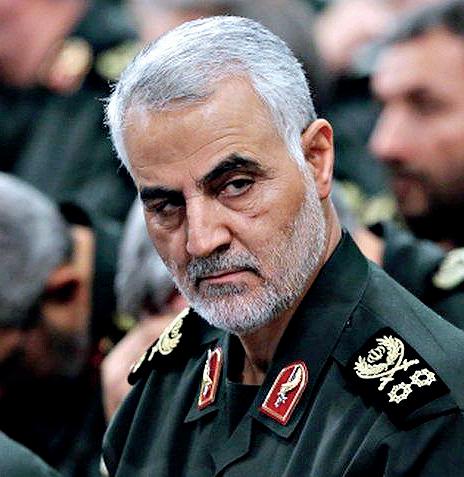
Hayman has previously admitted that Israel provided intelligence to America about Soleimani, but his words “immediate threat” are what former president Donald Trump used when he took responsibility for the attack, suggesting it was that exact piece of Israeli intelligence that led to the decision to assassinate the IRGC leader. “Soleimani was plotting imminent and sinister attacks on American diplomats and military personnel but we caught him in the
act and terminated him,” Trump told reporters at the time.
After Soleimani’s militias had helped to defeat Islamic State, the US was “standing in his way because he wanted to control the Middle
East. So his focus changed from Islamic State to US presence in the region,” Hayman said.
Speculations over Israel’s alleged role in the assassination quickly spread, owing to Soleimani’s cam-
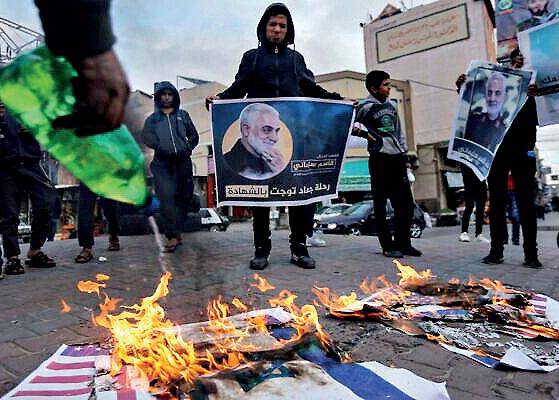
paign to arm and supply Israeli enemies in Lebanon, Gaza and Syria.
“Israel convinced the US of Soleimani’s malign activities against Americans. The US was mainly focused on fighting terror, not Iran,” Hayman said. “We supplied the intelligence and shared analysis and over a long period of time they were eventually convinced that Soleimani was an immediate threat to American lives and its strategic posture in the Middle East.”

The IRGC chief had huge leadership, he said. “He could stand on a hill in Syria and pinpoint to the militias how to conduct the strategy he had designed and approved with the Supreme Leader a few hours before.
“In 2016 he elaborated on a grand master plan on how to ensure that

Syria would become a second Lebanon,” Hayman added. “That there would be a Hezbollah 2.0, transfer of Sh’ites into Syria, and he would control the Syrian government. He had similar plans about Iraq and Yemen.”
Hayman argued that the assassination of Soleimani made the Middle East more stable: “When he disappeared, you still had ‘builders’ on the ground but there was no vision.”
Hayman, military intelligence chief from 2018 to 2022, set out the steps world powers, and Israel, should take to meet the challenge of Iran’s nuclear programme: acknowledge that the strategy until now “has failed” in order to design a new one; convince the Europeans to leave the deal; negotiate a new deal, based on “more for more” –more sanction relief in return for more promises not to advance the programme; and for Israel to coordinate a military option with the US.
Hayman said a unilateral strike by Israel might spill into a regional war, so aligning with the US is crucial.
Conservative MP has sparked fury after claiming that safety around Covid vaccines “is the biggest crime against humanity since the Holocaust”, writes Lee Harpin.
Andrew Bridgen, Tory MP for North West Leicestershire, tweeted an article posted on a Covid conspiracy news site which claimed to show the extent to find adverse reaction to the vaccine amongst adults in America.

Bridgen tweeted the article before writing: “As one consultant cardiologist said to me this is the biggest crime against humanity since the Holocaust.”
Labour shadow minister Christian Wakeford led calls for the Tories to remove the whip from the MP, who has become an outspoken critic of the lockdown during the pandemic.
Wakeford tweeted: “Fake news and scare-

mongering on vaccines is bad enough but to invoke the Holocaust during the month of Holocaust Memorial Day is despicable. When is it enough for the Tories to withdraw the whip?“
Bridgen has previously sparked anger over comments made about an alleged “Jewish lobby” during a parliamentary debate. He apologised for using the term in 2014.
The anti-racism organisation Hope Not Hate has also raised further concern about Bridgen’s recent appearance on a podcast broadcast by his close associate James Delingpole, where they both discussed Covid conspiracy theories.



Delingpole has previously sparked anger by defending the rapper Kayne West over his antisemitic comments.
Bridgen was suspended from parliament for five days earlier this week.
The National Education Union has been criticised for promoting unproven allegations about Israeli settlers in the West Bank training wild boars to scare Palestinians.
Member Mohammed Aziz wrote an article in the NEU magazine about his trip to Ramallah. He said: “We were told that wild boars are released in and around the camp by settlers to scare children.”
In November, website Mon-
doweiss published an article with the headline: “Wild boars in Palestine are being weaponised by Israeli colonialism.” Palestinian President Mahmoud Abbas was reported as saying: “Every night [Israelis] release wild pigs against us. Why are they doing this to us?”
Israel has seen a lot of wild boar recently, particularly in the north, where residents complain they pose a threat.
The newly formed National
Jewish Assembly said: “The NJA demands that the NEU remove the article from the online version of Educate and issues an apology for allowing this piece of blatant hate speech and propaganda to be printed without any fact-checking.”


NEU later said: “While delegates were told this is the lived experience of some people in Palestine, the NEU has removed the reference to wild boars from the article.”


Plans to drastically weaken and politicise Israel’s Supreme Court has drawn tens of thousands of protesters to the streets and sparked deep concern from opposition party leaders, writes Jotam Confino
More than 10,000 people demonstrated in Tel Aviv against the government’s judicial reform plan, with another mass rally planned for Saturday.
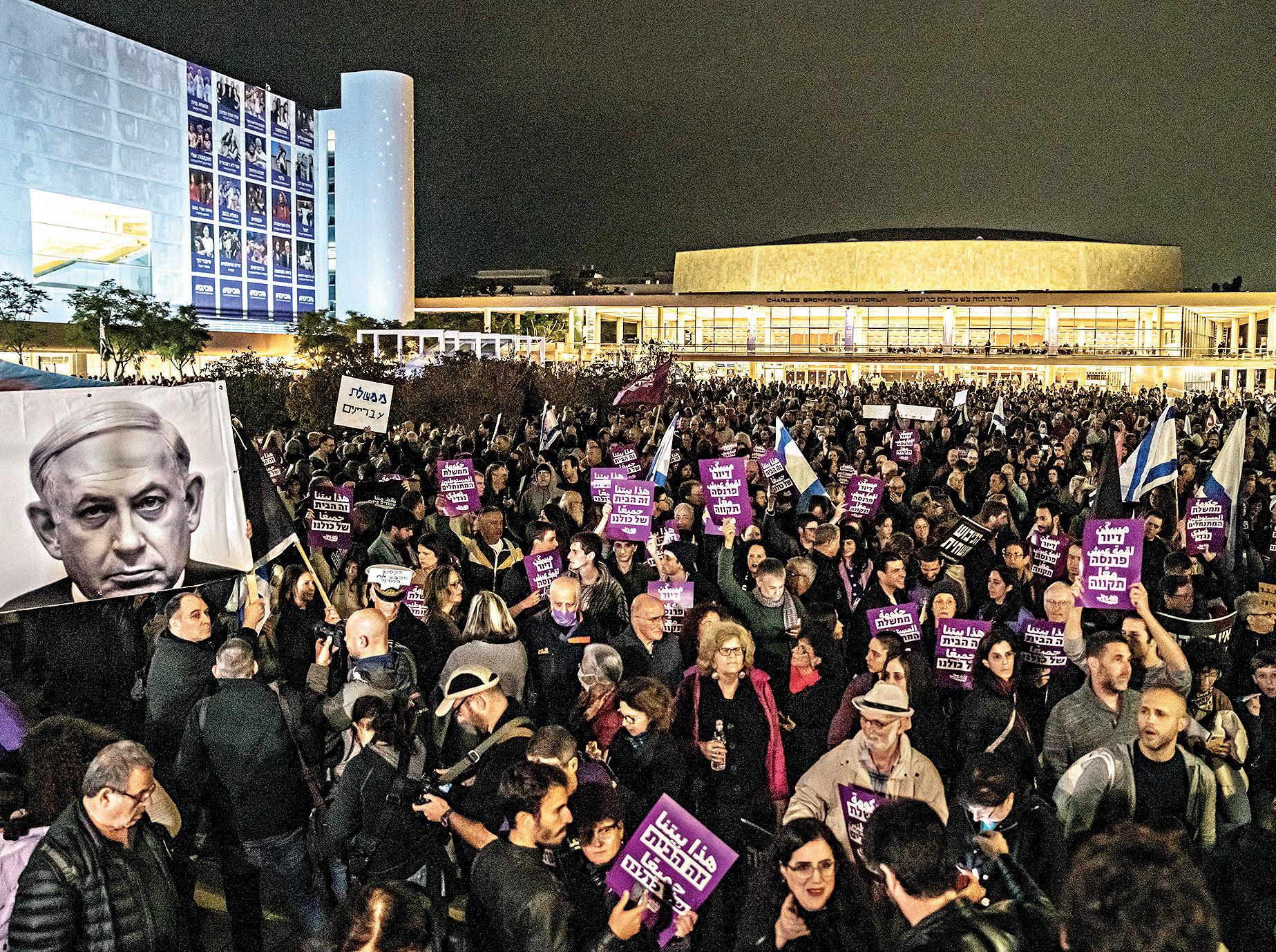
The judicial reforms, which could be rubber-stamped within months, include a number of significant changes, including the “override clause”, which prevents the judges striking down Knesset legislation.






The appointment of new High Court judges will also be changed, according to the plan, altering the composition of the appointments committee so that a majority of its members are government-selected representatives. In other words, the government will to choose the judges.
Nadav Lazar, spokesman for the Movement for Quality Government in Israel, told Jewish News that the protests, unlike those against Benjamin Netanyahu after he was indicted for corruption, brought people from all sectors of society.
“People that weren’t in previous protests are now joining, such as the LGBTQ community. I don’t think the government can ignore it [mass protests held every week],” Lazar said.
The reforms, which arguably will be the biggest changes to Israel’s judicial system in the country’s history, are expected to be implemented by as early as March.
The public spat between party leaders spiralled out of control
this week, with one far-right lawmaker in the government calling for the arrest of opposition leader Yair Lapid and National Unity Party leader Benny Gantz as well as former lawmakers Yair Golan and Moshe Ya’alon, all of whom have been particularly critical of the government’s plans.
Golan called for “civil disobedience”, and Gantz warned Netanyahu and the government that if they continued on they “path” they are on, “you will be responsible for







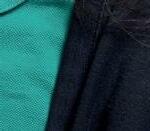


*Care is at the heart of everything we do.
We are providing face-to-face counselling, therapies and complementary therapies at Chai centres across the UK.


This is in addition to all the specialised support and care that we continue to offer our clients through telephone, Skype & Zoom.










For more information please call 0208 202 2211 or visit www.chaicancercare.org
Together we can cope. Together we will care.
civil war in Israeli society”.
He added: “It’s time to go out en masse and demonstrate; it’s time to make the country tremble.”


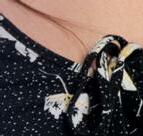






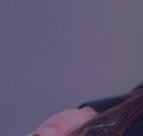
























Lapid also warned of the “dangers” to Israel’s democracy, calling Netanyhau’s government a “gang of criminals”.
Religious Zionism lawmaker Zvika Fogel, a retired IDF brigadier general, said: “This is crazy. These four should be arrested. These are the most dangerous people right now. As far as I’m concerned, it’s treason against the state, if I wasn’t
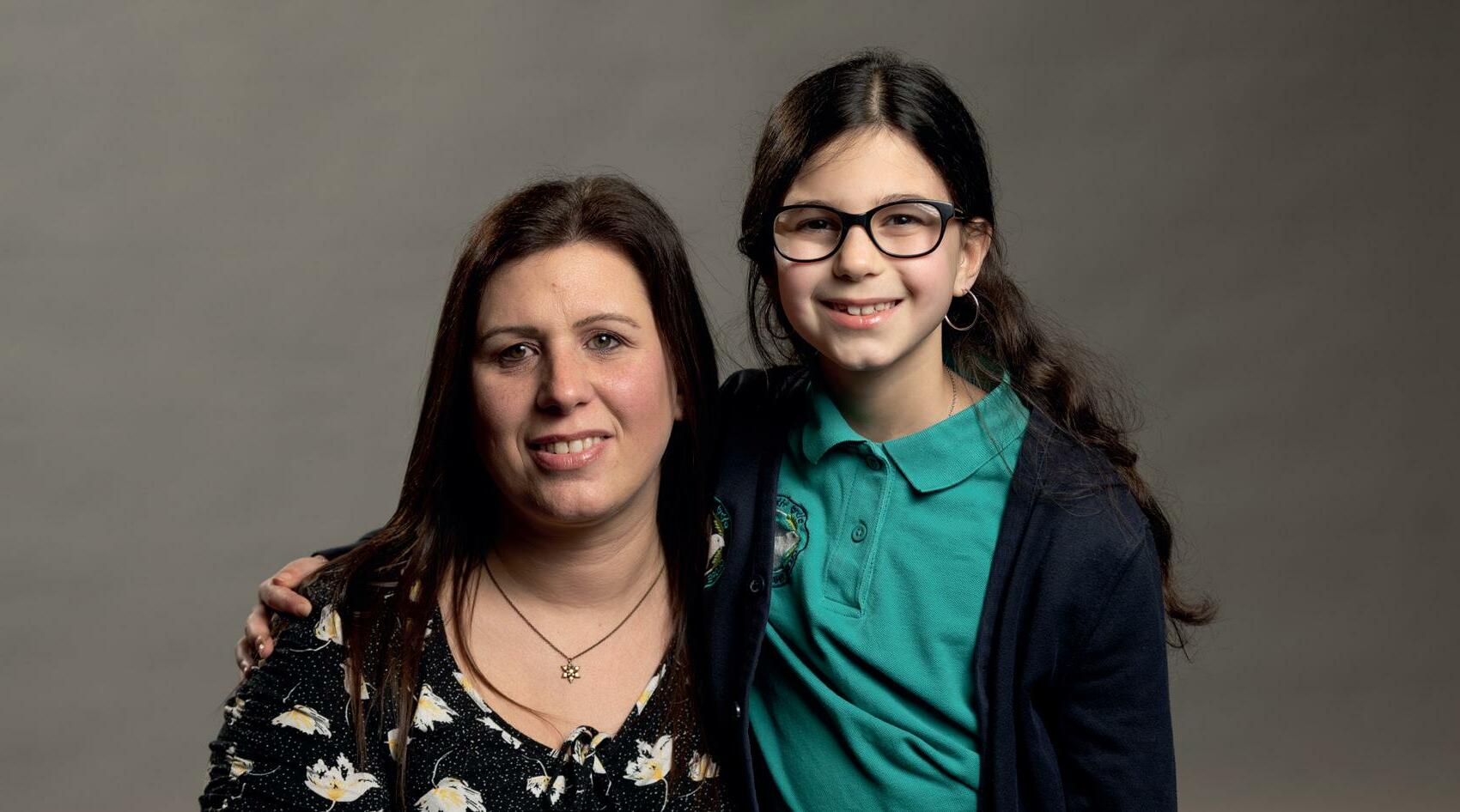
clear enough.”




Netanyahu fired back at the accusations, saying: “We remain undeterred in the face of the rampant incitement against us,” arguing that the judicial reforms will in fact make Israel more democratic.
President Isaac Herzog issued an unusual statement amid the public debate, saying he promised to “protect” values of Israel’s Declaration of Independence, while urging lawmakers to “lower the temperature”.
Herzog added on Twitter: “I turn to you, elected officials from both ends of the political and public spec-
trums – show restraint and responsibility. We don’t have another country.”










Gantz responded to Herzog, saying he agreed with his message, while Netanyahu spoke with the president, issuing a statement saying: “In a democratic country, one does not arrest the leaders of the opposition just as one does not call government ministers Nazis and a Jewish government the Third Reich. Neither does one call on citizens to launch a civil rebellion.”
Netanyahu referred to a banner seen at the demonstration in Tel Aviv comparing justice minister Yariv Levin to a Nazi, calling it “wild incitement that wasn’t condemned by opposition or mainstream media”.
Levin, who presented the judicial plan earlier this month, defended the proposals, saying: “I am excited by the strong public support for the plan, as well as the growing numbers of jurists supporting the moves I’m leading. The time has come to restore democracy.”
However, a recent survey from Israel’s Democracy Institute found that 54 percent of Israelis believe that the High Court should be able to strike down Knesset legislation deemed unconstitutional, or in Israel’s case, would violate its Basic Laws. Only 35 percent disagreed with this.
The judicial reforms have also been widely criticised by former High Court presidents, attorney generals and prime ministers, who compared it to a coup d’état.
Former High Court president Aharon Barak, who is widely revered as one of the most influential judges in Israel’s history, slammed the government’s plan in interviews with Israeli television over the weekend, calling it a “coup without tanks”.

Shadow health secretary Wes Streeting has defended Keir Starmer’s decision to remain in Jeremy Corbyn’s shadow cabinet, suggesting the now-Labour leader was at the time an “ally” who took the crisis over antisemitism “seriously”, writes Lee Harpin.
Speaking extensively at Sunday’s Jewish Labour Movement annual conference on his thoughts on overcoming the crisis with the NHS, Streeting said: “Thank God people like Keir Starmer were in the shadow cabinet during that really difficult time.
“Being one of the people that I could go to on some of the darkest chapters of that period, on antisemitism, and know that in the shadow cabinet there was an ally who took it seriously.”
Streeting said in his view Starmer “did
stick his head above the parapet and speak out” as the crisis over anti-Jewish racism under Corbyn gripped the party.
Streeting said Starmer was at the time someone he would “trust to lead on the issue” and once he became leader he knew that he would “stick to his word on antisemitism”.
In conversation with The Times journalist Henry Zeffman at a packed event at JW3, north London, Streeting accepted he had made a “different choice”, refusing to serve on Corbyn’s front bench.

But he said: “We made different choices but we were confronted with the same dilemma, the same challenges … wanting the Labour Party to be in a position where we could win again.”
Streeting added:”I don’t feel my choice was any more morally superior compared to people who chose to serve. I think we were put in a very, very difficult position.”
At one point under the former Labour leader, Streeting said Starmer had approached him asking if he thought he should resign from the shadow cabinet over a “different issue”.
Streeting said Starmer asked him: “Do you think I shouldn’t be in the shadow cabinet? Do you think I should resign?”
In a revealing discussion of his plans to bring reforms of improvement to the





Momentum founder Jon Lansman has claimed the “emergence of antisemitism” in Labour coupled with “profound factionalism and hatred on both sides, left and right” contributed to the “most traumatic, stressful years of my life”, writes Lee Harpin.
In controversial comments made at a session at the JLM conference re-evaluating the impact of Jeremy Corbyn’s leadership, Lansman also criticised co-panellist Dame Margaret Hodge MP for what he described as a “pointless” attempt to oust the ex-leader.


Lansman, who stood down as Momentum chair in May 2020, accepted Corbyn could not comprehend it was possible to be “an antiracist but still have racist prejudice”.
He added: “We all have prejudice, we have to be aware of our prejudice. Jeremy doesn’t get that actually, and that’s at the heart of it.”
Lansman continued: “You have got to be careful about the word ‘antisemite’.”
Referring to the much criticised Forde Report into Labour’s leaked antisemitism
report, Lansman backed claims there had been a “weaponisation of antisemitism on both sides” which “made things worse”.
Dame Margaret hit back, saying it wasn’t factionalism that made her understand Jeremy Corbyn was “an antisemite and a racist” but his actions and his comments defending the antisemitic Tower Hamlets mural. Corbyn’s failure to endorse the IHRA definition of antisemitism, she said, had proven to be the “final straw”.
Shadow minister for the Middle East and North Africa Bambos Charalambous told JLM “the diaspora has a role to play in speaking out about the approach of the [new] Israeli government”, adding “any pushback would be welcomed”, writes Jenni Frazer.

In conversation with JLM honorary president Dame Louise Ullman, the Enfield Southgate MP gave an over-
view of the attitude of a future Labour government to developments in the Middle East.
He maintained his party’s approach would be one of “consistency”, though acknowledged Labour agreed broadly with sanctions imposed by Rishi Sunak’s government on Iran — and hinted Labour might go further.
Iran, he said, was “a hostile actor” which sponsored both

Hizbollah and Hamas and he would be keen to extend sanctions and punish those who breached them, noting Iran was helping Russia against Ukraine. People should “get involved” in sanctions against Iran, he added.
Charalambous also spoke of “the need to call out human rights abuses across the region – it won’t make us popular but we need to be consistent”.
NHS if a Labour government comes to power at the next election, Streeting slammed the Conservatives’ record on health.
But he said “just getting the chequebook out” was not the answer, and NHS reform would include using private sector capacity to bring down waiting lists.
Streeting said “left wing principles” should not be a reason to stop patients using spare room capacity in the private sector. He also revealed he would be meeting with the BMA this week, amid claims it has been angered by Streeting’s plans to change the existing GP system.
The Ilford North MP said the “broad sweep” of Labour MPs “understand” his call for reform of the NHS and added they were “so tired of being in opposition”.
JW3’s main hall was packed to capacity as Streeting spoke to an overwhelmingly responsive audience, which included many health workers from within the community.

One medical student told the MP that many of his fellow undergraduates were considering careers abroad because of the dire state of the NHS in this country.
David Miliband has warned that Benjamin Netanyahu’s new far-right Israeli government jeopardises both the character and pluralism of the country.
Speaking via video link to the JLM conference, the former Labour foreign secretary said “the fear is” the Jewish democratic nature of Israel is “under threat” and under “rightful scrutiny.”
Miliband also warned the “redefinition of what it is to be a Jew is something very much on the agenda” of the new government, emerging from the “anti-pluralist theological wing of the government, but also from threats
to the legal and judicial system.”
But asked by the journalist Jonathan Freedland whether he believed groups such as JLM should now refuse to engage with members of the Israeli government, Miliband said: “I have a strong bias towards engagement rather than boycotts.” He added: “The caution I give is the purpose of engagement, the nature of engagement needs to be carefully thought through. It needs to be engagement for a purpose.”
Miliband said that while he was in office he engaged with the Iranian regime, but refused to visit, fearing to do so would have left him used as propaganda.”
Labour would recognise a Palestinian state if the party is elected to power at the next election, shadow middle east minister Bambos Charalambous has confirmed.
Speaking at the JLM conference, the Enfield North MP suggesting the move was necessary to spark talks around a twostate solution.
Charalambous said: “We would recognise a Palestinian state, as things stand.
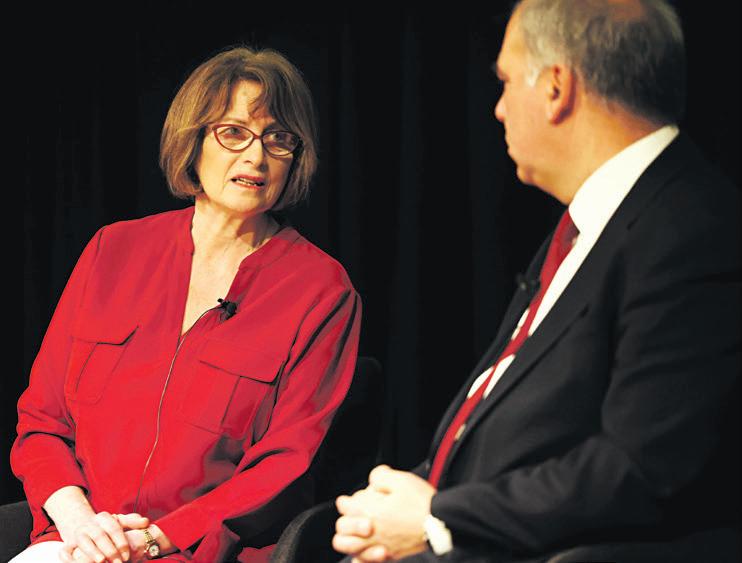
“Obviously what that looks like would depend on where we are if and when there is a

Labour government.
“Hopefully that would help kick-start any sort of talks around working towards a twostate solution, because at the moment nothing is happening.”
The shadow minister noted that a Palestinian state had been recognised by “well over 100 countries”, adding that recognition had been in the Labour manifesto in the past and was also still the paty’s policy.
Responding to a question on the issue from Jerry Lewis of the Board of Deputies, Charalambous noted there had been a

lack of any serious peace talks between Israel and the Palestinians for the past eight years.
Lewis said there needed to be a “negotiated settlement” and called for Labour to review its policy of immediate recognition of a Palestinian state.

Charalambous agreed the issue was of concern to some in the community, both in the UK and in Israel.
The MP said he feared we were now in a situation where the religious Zionist parties “don’t even recognise Palestinians have rights anyway”.
Winners of the Holocaust Memorial Day Trust’s (HMDT) ExtraOrdinary Portraits competition have been unveiled in a new exhibition at the Houses of Parliament, writes Joy Falk.

Partnering with the Royal Drawing School, HMDT asked young people aged up to 25 to create portraits of those affected by the Holocaust, genocide or identity-based persecution.

Judges included top photographer Rankin, HMDT CEO Olivia MarksWoldman, Rwandan genocide survivor and university chaplain Antoinette Mutabazi, HMD trustee Tulip Siddiq MP and acclaimed young portraitist Gideon Summerfield.
The judges chose 30 portraits for a new digital exhibition which will also feature in the national online ceremony for Holocaust Memorial Day.
The exhibition in parliament features two competition entries alongside five portraits of Holocaust and other genocide survivors taken by Rankin himself.
Marks-Woldman said: “We are delighted Mr Speaker has chosen to
host this exhibition in the heart of parliament. As we reflect on this year’s Holocaust Memorial Day, theme, Ordinary People, it is fitting these extraor-
dinary images will be displayed for the country’s decision-makers to see.”










Speaker of the House of Commons Sir Lindsay Hoyle said: “This
exhibition is a powerful statement that the United Kingdom will always remember the millions of people murdered during the Holocaust and more
recent genocides. It prompts us to learn the lessons of the past and recognise genocide does not just take place on its own – it is a process which can begin if discrimination, racism, and hatred are not checked and prevented.”
Tulip Siddiq MP said: “This was an important opportunity to engage young people with the Holocaust, genocide and identity-based persecution, and amazing to see the thought they put into their portraits.”
The Hampstead and Kilburn MP selected a self portrait by Walid Yasir, who survived the genocide in Darfur, for a prestigious Judges’ Favourite Award.
Another entrant, Jacob Venit, 17, produced a portrait of Nisad ‘Šiško’ Jakupović, who survived the genocide in Bosnia.
Jacob said: “As a Jewish person, I find it horrific genocides like these continue to take place. Lessons never seem to be learned by the evil people who persecute minorities.”
An independent report by a barrister looking into widespread allegations of antisemitism within the National Union of Students has concluded the body failed in its legal duty to protect Jewish students from harassment relating to their race and religion over a 17-year period.
The damning 108-page report, by KC Rebecca Tuck, concludes that the NUS has encouraged a “hostile environment” towards Jewish students and has committed key breaches of the Equality Act 2010.
Tuck finds that in seven of eight cases of alleged anti-Jewish racism by NUS o cers that she reviewed, “classic antisemitic tropes... and references to Hitler and Nazism were made when commenting on Israel”.
It reveals that on one occasion the NUS ignored a Jewish student com-

cluded that the culture in the NUS over the past 17 years has “been perceived by many Jewish students, for good reason, as hostile”.
It also details a failure by the NUS to act on previous reports into its failings around antisemitism and failings of record keeping relating to the problem.
The KC suggests the “underlying reason” for the breakdown in relations between Jewish students linked to the Union of Jewish Students and the NUS is over discourse around Israel and Palestine. But the report finds no evidence of claims made by pro-Palestine activists that the IHRA definition of antisemitism has a “chilling e ect” on free speech.
She writes of “numerous instances where Jewish students have su ered antisemitism because of assumptions that they are ‘Zionists’ and assumptions about what that means.”
with confidence to tackle antisemitism head on. Let us be clear, there is no place for antisemitism within NUS and we are committed to ensuring that Jewish students feel safe and welcome in every corner of our movement.”
Tuck herself says she has “confidence” that the new NUS leadership team do have the desire to change the body’s relationship with Jewish students.

Tuck’s investigation provides full detail of the e orts by sacked expresident Dallali to ensure that a performance by the conspiracy theorist rapper Lowkey could go ahead at an NUS centenary event in March, despite complaints from Jewish students about his comments.
plaint alleging that a student leader had called for a ‘final solution’ on Jewish representation on the body’s Anti Racism Anti Fascism committee at a meeting.
Tuck’s report – which followed her earlier one, which looked into the conduct of now dismissed former NUS president Shaima Dallali – con-

Tuck adds: “This has led to views within NUS both that complaints of antisemitism are made in bad faith to try and avert pro-Palestinian or antiIsraeli political advocacy, and to an antipathy towards Jewish students in spaces such as conferences. This has resulted in antisemitism as well as hostility towards Jews which has not been challenged su ciently robustly or proactively by NUS.”
In a statement, NUS accepted the report was a “detailed and shocking account of antisemitism within the student movement”.
It added: “It is a truly di cult read for all of us, but we welcome the clarity it brings to enable us to act
It includes notes made by the ex-NUS leader ahead of the concert in which she wrote: “Layout: At events we’re also conscious that some students may not feel comfortable engaging with all the performers (spaces?) – but there are a number of reasons that people might not want to be in that space, for example, for certain neurodiverse students, it could potentially be an overstimulating environment. For those who want to remove themselves from the main party area is that there will be [sic] a really nice relaxed hangout area just next door to the main venue.”
Tuck says a “further mitigation was to advertise performance time ‘to give you some reassurance that this will be a time-bound period’”.
Her report concludes that press reports suggesting Jewish students
were told to “segregate” themselves at the conference were inaccurate, but adds: “The only reasonable interpretation of advertising performance timings and the availability of alternative spaces was, however, to enable Jewish students to avoid the performance. Indeed that was the summary the sta member gave to me, stating ‘there [were] multiple social spaces available if attendees did not wish to see Lowkey perform’.
“The proposed ‘mitigations’ entirely missed the objection of the UJS [Union of Jewish Students], which was the performer would not appropriate for the event. At the conclusion of the meeting it was agreed that a NUS sta member would review the objections to the performer. The sta member reviewed the Twitter feed of the performer and came to a view there was no antisemitism and nothing to prevent the performance from going ahead; they had been unaware of the concern of him being a ‘9/11 truther’.”
Tuck heard from Jewish students who shared their evidence with the KC. She noted that some complained of being stripped of their other iden-
tities in NUS, and “reduced to being only ‘the Jew’ in the room”.
The report also provides evidence the Jewish students were “treated as a pariah at NUS events” in a way that was “discriminatory”. In testimonies, Jewish students said their experiences in NUS spaces left them “personally shaking and almost in tears” and in “a state of significant distress” owing to the harassment which they faced, paired with a culture of bystanding by NUS sta .
Tuck includes 11 recommendations for the NUS to follow in order to make the significant changes required in relation to Jewish students.
She calls for the NUS to establish an advisory panel to ensure the implementation of the recommendation, to improve policy around record keeping, implement a due diligence process for election candidates, and for the body to undertake antisemitism training, provided by UJS.
Tuck also stresses the need to improve the environment of discussions around Israel/Palestine as well as undertaking a survey of Jewish students to test the implementation of these recommendations.
The landmark report into antisemitism in NUS confirms what Jewish students have been saying for years – antisemitism in student politics is deep-rooted, widespread, and leaves an indelible mark on those who experience it.
In my first week at UJS, I compiled our submission to Rebecca Tuck KC’s independent investigation. Speaking to students who had fallen victim to the organisation’s exclusionary culture, I was struck by how enduring their experience of discrimination and harassment
in the organisation had been. Di erent Jewish students, with wide-ranging political and religious backgrounds, shared similar sentiments. They spoke of being marginalised and dehumanised, reduced to a crude stereotype.
Revealingly, this investigation could only identify one proactive NUS statement of solidarity in support of Jewish students. This statement served to condemn extreme right-wing antisemitism. There has been an organisational failure to address antisemitism in all its manifestations. The true test of whether an organisation is committed to tackling anti-Jewish racism is whether it is able to robustly respond to antisemitism, no matter where it comes from.
We at UJS, representing the thousands of
Jewish students in the UK and Ireland, need to see action. We need a recognition of the kind of conspiratorial antisemitism which sees Jews as agents of a foreign power; as bad-faith actors who weaponise antisemitism for political gain.
If you were to gather the numerous individuals who gave evidence of personal experiences of antisemitism to the Tuck investigation in one room, you would meet individuals spanning decades of student activism. You would see people who are Zionist and those who are not. You would see many faces you would recognise, who have held senior roles in student politics, but you would also find people who have never made the headlines. One-time conference attendees who never felt safe coming back, NUS
sta members who didn’t speak out for fear of retribution, and Jewish students with no particular political a liation who just wanted to be a part of their national student union. All of them endured a toxic and hostile culture.
The report is lengthy and nuanced. But the principle underpinning it is simple: Jewish students have the right to be themselves within their national union. They shouldn’t have to leave any part of their identity at the door.
For many decades, NUS was a leading national voice that campaigned on consequential issues. It can be that voice again. But only if it brings about a sea change in its treatment of Jewish students. An NUS that doesn’t represent Jewish students is not fit to represent anyone.

A unique culinary experience with world renowned chefs Avi Steinitz and Arik Porat, offering a rich variety of cuisine, Open Bar & more.

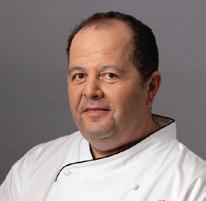

Indulge in an unforgettable 5-star stunning beach front Spa Resort exclusively Kosher for Pesach. Maximum 450 guests.











Chol Hamoed self guided family outings with so much to do in the area: biking, boating, hiking, museums, water sports and many local attractions.
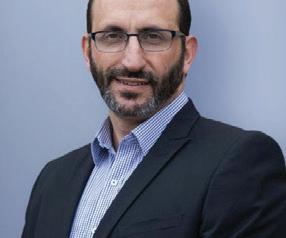






Daily supervised activities and programs for all ages. World famous Entertainers, Scholars, Shiurim, Lecturers, Kids & Teen Camps & more...
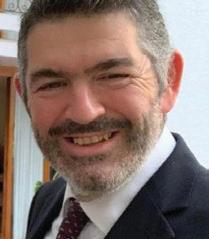
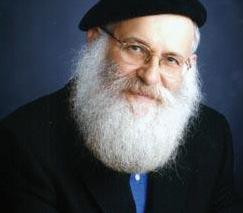

Personally Hosted by David & Chana Walles, International guests. Wonderful Chag Atmosphere. Direct flights from TLV and European Capitals.20 min drive from Rhodes Airport. Affordable pricing.

Just days after Israel’s government cut tax on singleuse plastics to help strictlyOrthodox Jewish families, UK ministers said the same items will soon be banned in England, writes Adam Decker
The announcement this week by Rishi Sunak’s government covers disposable tableware such as plastic cutlery, plates and polystyrene trays.

In Israel, a 2021 tax rise on the same products was reversed late last week.

In England, 1.1 billion single-use plastic plates and more than four billion pieces of plastic cutlery are sold every year. They are lodged in landfill sites but do not decompose. Many end up in the sea before getting washed ashore, caught up in fishing equipment or broken down and ingested by marine life.
The European Union banned single-use plastics in July 2021. It already has directives covering cotton bud sticks, cutlery, plates, cups, straws and stirrers, balloons, food containers, cigarette butts, plastic bags, packets and wrappers, wet
wipes and sanitary items.




Scotland and Wales also have laws on single-use plastics (SUPs), and on Monday UK’s environment secretary Thérèse Co ey set out the ban, which targets mainly takeaway food and drink.
It contrasts with the ruling by Israel’s new government, led by Benjamin Netanyahu.
Bezalel Smotrich, in one of his first actions as finance minister, repealed tax rises imposed two years ago on disposables and sugary drinks.
Strictly Orthodox politicians praised the decision, and images on social media
showed Charedi men celebrating by drinking a popular sugary soft drink from disposable plastic cups.
Uri Maklev, head of the Charedi United Torah Judaism party, said the 2021 tax rises were seen as unfairly targeting the strictly Orthodox.
Reversing them meant the government was “working for the citizens, not against them”, he added.
According to Israel Aviav, CEO of Israeli disposables company WinPac, per capita Israelis are the world’s biggest users of disposable tableware.
Finalists for the British Kebab Awards 2023 have been shortlisted, with a range of kosher shawarma restaurants and takeaways vying for top spot.
Dubbed “the most delicious awards in Britain”, the BKA introduced a kosher kebab category for the first time this year, following involvement from Jewish News.
The list is sprinkled with the best-known kosher kebaberies, including two from Manchester, but most are in and around London.
Top ten finalists include Reuben’s Restaurant, Pita, Bricky’s, Balagan, Balady Alaesh, Sami’s Restaurant, Sami’s, Sababa Borehamwood and Habiba’s Deli & Smokehouse, plus Shefa Mehadrin in Manchester.
Just missing out on the top 10 were KASA –Bar & Grill, Ta’am, Balady – Camden, Hummus Bar, Delicatessen and Bagels Bar Grill House.

The BKA has gone from fringe event to social calendar highlight. Founder Ibrahim Dogus said the awards “go from strength to strength… It’s a great way of bringing communities together”.
With 1.3 million kebabs sold every day, the British industry is worth £2.8bn annually to the UK economy, providing around 200,000 jobs across restaurants, suppliers, and the food industry, but until now the kosher versions could not compete for the annual prize.
Dogus said a celebration of the kebab was a celebration of diversity and immigration into the UK, with Kurdish and Turkish communities among the most prominent.
Other BKA categories include best restaurant by region, best kebab house by region, and best kebab van, plus best fine dining, best takeaway, best value, best Lebanese and best chef.



A fundraising campaign to honour community stalwart Leonie Lewis has passed its £36,000 target.
Leonie died last April, aged 66, after a sudden diagnosis of lymphoma. With the initial target achieved (the number ’36’ symbolising chai, or ‘life’), her widower Howard has set a new figure of £66,000: £1,000 for each year of her life.
A Jewish community pow-

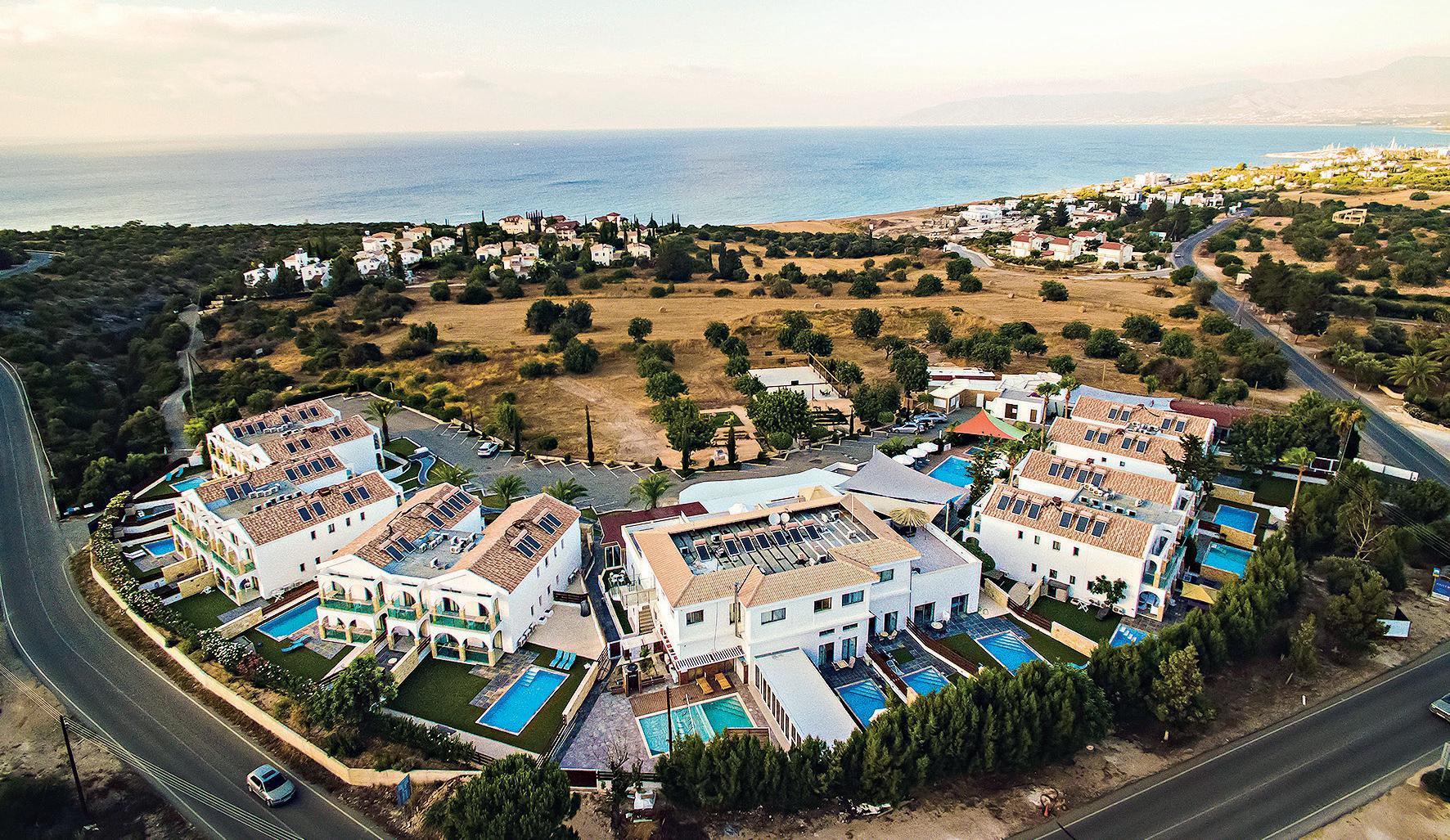
erhouse, Leonie dedicated herself to service. She was a trustee and council member of the Faith Forum for London, joint vice-president of the United Synagogue, former co-chair of United Synagogue Women, adviser to the Children’s Aid Committee and assessor for the Queen’s Award for Voluntary Service.
Established by the Jewish Volunteering Network












(JVN), of which Leonie was a founding director, the Leonie’s Life and Legacy programme will promote volunteering and interfaith work.
A member of Pinner shul, she was awarded an MBE by the Queen in 2017 for services to the Jewish community. Leonie and Howard have two sons and nine grandchildren. • For more see justgiving.com/ campaign/leonieslegacy
Amateur Israeli archaeologists are asking for help in tracing the family of a British Second World War sergeant major after they found his identity bracelet in a field near the Israeli city of Hadera, writes Adam Decker. Gan Erez, 51, is part of an archaeology group who found the bracelet of Lieutenant James Clark, an ex-Company sergeant major and quartermaster in the Argyll and Sutherland Highlanders.
“I’m asking for help,” Erez said, describing the metal detector find 28 miles north of Tel Aviv. “I believe it is our collective duty as human beings to find Lt. Clark’s family and give them back the bracelet we found. Imagine how happy they’d be to receive such an amazing memory of him.”
Erez said Clark’s military identification number (202637) is shown clearly on the bracelet, which can help to match to civilian ID numbers belonging to Clark or his relatives. “From there, it should be much easier to find his family.”
The Israeli said he had been in touch with the Argyll and Sutherland Highlanders Museum in Stirling, Scotland, who helped by providing a photograph of Lt. Clark, but said more information had been di cult to come by.
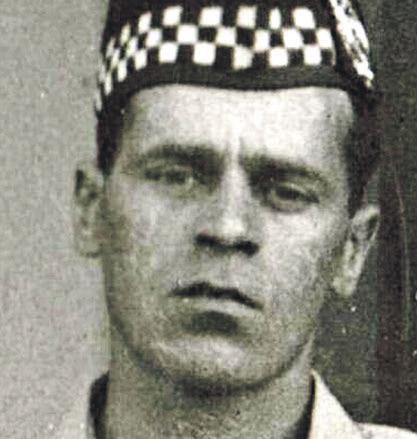
The appeal follows Erez having spent “considerable time” trawling through social media sites in pursuit of more information regarding Lt. Clark’s family. “Sadly, such e orts have not brought any more information,” he said.
“Please, whoever can help us find Lt. James Clark’s family, please help, so we can give his family a wonderful present to celebrate the new year.”
A three-day conference dedicated to the Jewish political and philosophical thoughts and influence of the late Rabbi Lord Jonathan Sacks will be held at Bar-Ilan University in Israel next week, writes Adam Decker.

Chief Rabbi from 1991 to 2013, Sacks was a prolific author and speaker until his death from cancer in 2020.
He won both awards and fans across the Jewish world and beyond for his intellectual and philosophical output.
The conference, sponsored by Jewish News, is being organised between the university and The Rabbi Sacks Legacy, and will include greetings from Israeli president Isaac Herzog and Rabbi Sacks’ brother Eliot.
Topics to be covered
include Sacks’ ideas on Jewish thought and religious Zionism, countering religious extremism, the ethics of responsibility, Orthodoxy in modernity, religious leadership, and his vision for Israel and the Jewish people.
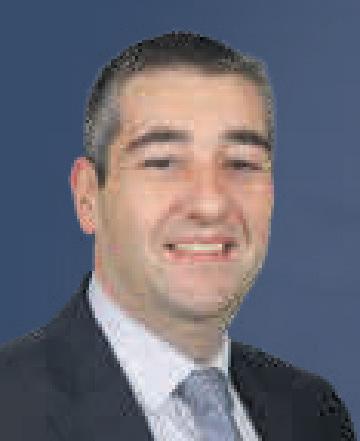
Alongside academics
from Bar-Ilan, there will be speakers from Oxford, McGill University, Yeshiva University, the University of Chicago, Seton Hall University, Arizona State University, the Hartman Institute and the London School of Jewish Studies.
Also attending are Rabbi David Wolpe from Sinai Temple in Los Angeles and Prof. Robert Putnam from Harvard.
Sacks received an honorary doctorate from BarIlan, as well as the Guardian of Zion Award from the University’s Ingeborg Rennert Centre for Jerusalem Studies.
The conference, which starts on Tuesday 17 January, will be at Bar-Ilan University campus in Ramat Gan. Sessions are primarily in English and open to the public.





In what has been described as “an epic win for Stamford Hill girls and parents”, the schools adjudicator has ruled against Yesodey Hatorah Senior Girls School’s admission policies, writes Jenni Frazer.


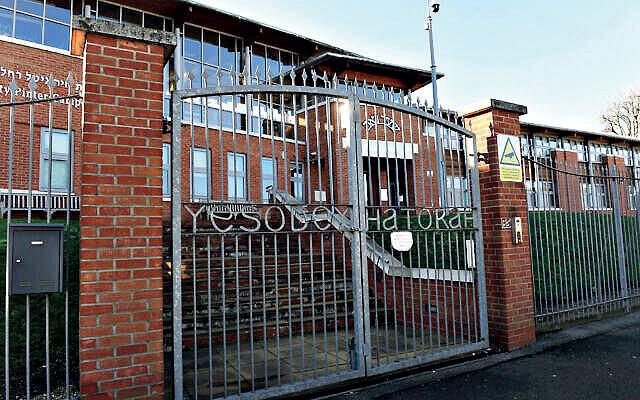
The school, which is voluntary-aided, had been arguing for a lower number of places available, claiming that the size of its buildings did not allow it to teach more students, and suggesting that there was no demand for places.

But the adjudicator’s report says the school must increase its published admission num-

ber (PAN) by 10 places. This means, says the Stamford Hill commentator If You Tickle Us, that as long as there are not more than 80 applicants, “every single girl will get in”.



Last September, six girls were rejected because of a claimed shortage of places; the previous year eight were rejected. Some unsuccessful applicants, it has been claimed, spent a year out of school.
The schools adjudicator, whose ruling is binding, was alerted to problems at Yesodey Hatorah by a resident in 2022. The ‘referrer’, as he is known in the report, asked to remain anonymous. The adjudicator, Bryan Slater, has ruled Yesodey Hatorah has two months to “revise its admission arrangements for both 2022 and 2023”.




University researchers in Manchester and London are using new technology to build a detailed picture of Jewish history in Ukraine after a Ukrainian historian learnt Hebrew to decipher the epitaphs in a Jewish cemetery, writes Joy Falk.

Dr Rachel Lichtenstein, from Manchester Metropolitan University, and Duncan Hay, a digital developer at University College London, are working on ‘memory mapping’ projects, building on the work of Tetiana Fedoriv.

Fedoriv learned Hebrew to understand the epitaphs in her local Jewish cemetery in the west Ukrainian town of Zbarazh, in the historic Galicia region, to create an archive of 175 individual matzevot (headstones), researching stories about the Jews buried there.
Lichtenstein and Hay are now working on memory mapping projects using the same platform that geolocates Jewish graves places like Ukraine for an EU-funded project, working with the Foundation for Jewish Heritage.
“The idea is to use this platform to geolocate Tetiana’s research,” said Lichtenstein, adding that the project will be completed in June 2023.

As well as Zbarazh in Ukraine, there will be parallel e orts in places such as Budapest in Hungary, Krakow in Poland, Chisinau in Moldova and Vilnius in Lithuania.

Alongside the production of memory maps, these ‘deep dive’ programmes will be aimed at coming up with digital audio guides, a photo exhibition, heritage

trails, downloadable education packs for local schools, a documentary film resurrecting the Jewish memory of a place, and even a poet in residence.

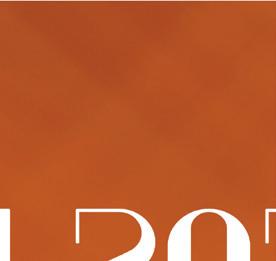
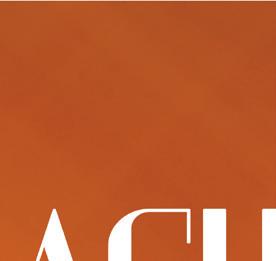
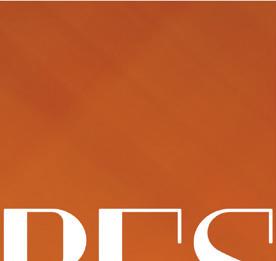
More information at: https://jewishmanchestermemory map.org www.jewishcemeteries.eu/deepdives



A few years ago, Oman was expected to follow Morocco, Sudan, Bahrain and the United Arab Emirates to sign the Abraham Accords normalisation agreements with Israel. Now the country’s parliament has voted to criminalise any relations or interactions with “the Zionist entity”.
The exact details have not been made public, but the new law seems to be broadly applied.
Oman’s WAF news agency quoted Omani parliament vice-president Yaqoub Al-Harithi saying: “The brothers, Your Excellencies, looked at the development taking place, whether it was technical, cultural, economic or sports, and proposed additional amendments that include severing any economic, sports or cultural relations

and prohibiting dealing in any way or means, whether it was a real meeting, an electronic meeting or something else.”








Oman was for a long time closer with Israel than other states in the region, never took part in any war with the Jewish state and established uno cial trade relations in the early 2000s.





Omani Sultan Qaboos Bin Said welcomed three Israeli prime ministers to his country but died in 2020 with no heirs and was succeeded by his cousin, Haitham Bin Tariq.
British journalist Tom Gross also notes one reason for the Abraham Accords setback may be fear of Iran, which has been conducting military exercises o of Oman’s coast and is reeling from months of domestic protest.

Two teenagers have been arrested for vandalising 30 graves and tombstones at the Protestant Mount Zion Cemetery in Jerusalem.
The suspects, aged 14 and 18, live in central Israel. The desecration, caught on security cameras, was widely condemned. Israel’s foreign ministry called it an “immoral act” and “a ront to religion”.
Archbishop of Canterbury Justin Welby echoed the labelling of the attack, calling it “a blasphemous act.”


The cemetery contains the graves of 77 military individuals, and the former Bishop of Jerusalem, Samuel Gobat.
Anglican Archbishop Hosam Naoum said after visiting the site the attack seemed to be part of a trend in Israel,
adding: “We have noticed hatred speech and hatred crimes are on the rise.”



Jewish community leaders also issued harsh condemnations, most notably UK Chief Rabbi Mirvis who said this was a “shameful vandalism” and a “disgraceful desecration for which I hope the perpetrators will be found and prosecuted to the fullest extent of the law”.
A similar act of vandalism against a Christian cemetery at the Beit Jamal Monastery took place in 2018.
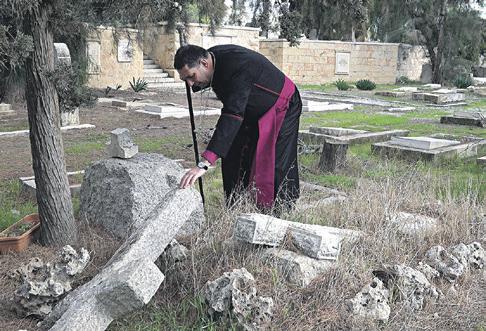
A comprehensive study of public opinion across 14 Arab and Muslim countries has found the overwhelming majority of respondents support a democratic system yet oppose recognition of Israel, writes Jotam Confino.

Some 72 percent championed democracy while 87 percent said they believed financial and administrative corruption was widespread in their countries and 39 percent said they don’t enjoy full equality.
As for Israel, which has normalised ties with several of the states included in the survey such as UAE, Morocco, Bahrain and Sudan, 84 percent of respondents opposed their home countries’ recognition of Israel, with 36 percent citing “colonialist occupying power in Palestine” as the main reason.
Nine percent cited Israel as an “expansionist state set on controlling more Arab territory.”
The figures are no surprise to Dr Yoel Guzansky, a senior researcher at Israel’s Institute for National Security Studies (INSS) specialising in Gulf politics and security.
“The Abraham Accords, as well as the peace accords with Jordan and Egypt, were signed with the elites, not the people. In Egypt, most people are against Israel,” Dr Guzansky told Jewish News.
Emirati Saoud Saqer, 31, is also not surprised many in the Middle East still don’t want to recognise Israel, saying a lot of them rely on biased reporting from Al-Jazeera or Hamas channels.
“For those whose country hasn’t normalised
ties with Israel, they simply haven’t seen the benefits that come with it. That’s why they aren’t supportive of it,” Saqer told Jewish News
Among respondents from Saudi Arabia, which Israel’s prime minister Benjamin Netanyahu has his eyes on as the next Arab state to include in the Abraham Accords, 38 percent rejected recognition of Israel, while 57 percent decided not to respond.
The fact so many Saudis declined to respond
to the question “demonstrates the difference between the Gulf and the other Arab states. The Gulf is usually more accepting and pragmatic when it comes to relations with Israel,” Dr Guzansky said.
Still, part of the reason Saudi crown prince Mohammed Bin Salman hasn’t signed a peace deal with Israel yet, Dr Guzansky said, is because most Saudis are against it.
“He will swallow that if he can get other
things in return such as weapons from the USA. Netanyahu says he can contribute to better Saudi-US relations, but can he really?”
Netanyahu might raise the issue of West Bank annexation again to try to blackmail the Saudis into signing a peace deal, as he did with the UAE, Dr Guzansky said, “but can he sell the same used car twice?”
A majority of respondents in the study had a negative view of American, Iranian, French and Russian policies toward Palestinians.
The report found 84 percent consider policies by Israel and the US a threat to stability and security in the Arab region, while only 57 percent see Iran and Russia as a threat.
Only 12 percent said they aren’t religious while a majority in 12 of the countries featured agreed with the proposition that “No one is entitled to declare followers of other religions infidels/apostates.” An overwhelming majority in Algeria and Mauritania disagreed with that statement.
Some 72 percent agreed “the government has no right to use religion to win support for its policies” while a slight majority disagreed with the statement “It would be better for my home country if religion was separated from politics.”
The study, made by the Arab Centre for Research and Policy Studies (ACRPS), included 33,000 respondents from Mauritania, Morocco, Tunisia, Libya, Egypt, Sudan, Algeria, Palestine, Lebanon, Jordan, Iraq, Saudi Arabia, Kuwait, and Qatar.

Continued from page 1
immigration. In Israel, too, it has had to step in, hence why Netanyahu’s new government wants to drastically limit its ability to block laws and decisions that Israel’s top judges deem discriminatory and/or undemocratic. Ministers also want to abolish “reasonableness” as a test by which judges weigh a law’s legality, and to give themselves control over judicial selection.

Barak warned that “the rights of everybody – Jew, Arab, ultra-Orthodox – are in grave danger” because “nobody will protect them” from the political majority of the day.
Israel’s parliament cannot resist a majority coalition, Israel has no constitution, no Bill of Rights, no second House, he said, meaning “your right to dignity, to freedom, to life will be gravely harmed… and there will no court to turn to”.
Imagine if that happened here. Imagine if the PM wanted to bring in discriminatory laws, didn’t like how the courts wouldn’t let him/her, so brought in laws knee-capping the courts’ ability to do so. Absolute power, in other words.
We don’t like criticising Israel for good reason – and because we don’t, it lends our criticism more power when we do. Why, then, would we say nothing now?
A far-right government hates legal oversight so hobbles the judiciary so they can do as they like. Isn’t it, finally, time for the Board of Deputies to speak out?

PO Box 815, Edgware, HA8 4SX | letters@jewishnews.co.uk


The late Rabbi Dr Avraham Levy was truly the people’s rabbi, someone who endeared himself to Jews and those from all walks of life. Indeed, the late Lord Sacks, former Chief Rabbi, accurately described him as a “builder of Institutions”.
Yes – a school, mikveh, colel etc. However, in addition, the rabbi’s particular forte was in the area of kirov – bringing people closer to Judaism and their roots.


His popularity was self evident by a large gathering at the levayah, from diverse areas of life yet each and every one feeling as if we were part of one family in mourning, completely at one with each other, regardless of differences. We came to pay respect to the people’s rabbi.
May his memory be a blessing. Flora Frank, Edgware
Your columnist Jenni Frazer, as usual, takes the moral high ground and damns the entire new governing party in the Knesset as a bunch of liars, being, as they are, of the “far right”, with a predictable blind spot when it comes to the sins of the left…anywhere! Thus she comes to the remarkable conclusion that lying is now no bar to taking a role in public life… and that “we get the leaders we deserve”…for the chutzpah of electing such a government!
Ms Frazer shows a lack of self awareness in her instant opinions, based on feelings rather than depth of knowledge, leading her to trash those with whom she disagrees and deepen community divisions.
Today’s Jewish rag is tomorrow’s fish wrapper, except that no self-respecting fish would want to be wrapped in Ms Frazer’s opinions. D Rosenthhal, NW4


With reference to Yotam Confino’s report on President Herzog’s tribute to the late King Mohammed V of Morocco, regretfully historians have debunked the myth that the wartime sultan offered a safe haven to Jews.
He did express sympathy, but he may have had no choice but to sign every one of the anti-Jewish decrees promulgated by the pro-Nazi Vichy collaborationist regime controlling Morocco between 1940 and 1941. Some 1,300 Moroccan Jews were sent to forced labour camps.
The sultan never uttered a word of disapproval. It is true that Jewish refugees from Nazism did use Morocco as a temporary staging post, but it is doubtful the sultan can claim credit for this. While Morocco must be congratulated for signing the Abraham Accords, Herzog is recycling a myth Moroccan Jews themselves have promoted out of nostalgia.
Lyn Julius, Harif – UK Association of Jews from the Middle East and North Africa
Thank you so much for featuring my dear wife, Leonie and please pass on my thanks to Michelle Rosenberg for her report. While I feel and live with how irreplaceable Leonie is, it was nice to see it published and whilst it has caused me many tears to read, I am truly grateful. It is also a belated thank you for the coverage at the time of her passing. You will appreciate I was unable to acknowledge the truly beautiful articles about her at the time.
Howard Lewis, By email


Thank


for helping to make Jewish News the leading source of news and opinion for the UK Jewish community.
Unlike other Jewish media, we do not charge for content. That won’t change. Because we are charity-owned and free, we rely on advertising to cover our costs. This vital lifeline, which has dropped in recent years, has fallen further due to coronavirus.
Today we’re asking for your invaluable help to continue putting our community first in everything we do.
For as little as £5 a month you can help sustain the vital work we do in celebrating and standing up for Jewish life in Britain.
Jewish News holds our community together and keeps us connected. Like a synagogue, it’s where people turn to feel part of something bigger. It also proudly shows the rest of Britain the vibrancy and rich culture of modern Jewish life.
You can make a quick and easy one-off or monthly contribution of £5, £10, £20 or any other sum you’re comfortable with. 100% of your donation will help us continue celebrating our community, in all its dynamic diversity.
Support Jewish News by visiting our donor page at jewishnews.co.uk






Letter writer Peter Cohen is at liberty to dislike the new Israeli government but misses the point.
Whether or not we like any Israeli government for any reason, it isn’t our right in the Diaspora to tell voters they got it wrong and their new government isn’t representative.
The only qualification for telling Israelis how to vote is to make aliyah. If Mr Cohen does this, his voice will be heard and vote counted.
I like the new government even if most Jewish communal organisations don’t. I guess that’s democracy, something the left seems to admire only when it wins.
Terry Davis, By email
Jewish News is owned by The Jacob Foundation, a registered UK charity promoting cohesion and common ground across the UK Jewish community and between British Jews and wider society. Jewish News promotes these aims by delivering dependable and balanced news reporting and analysis and celebrating the achievements of its vibrant and varied readership. Through the Jacob Foundation, Jewish News acts as a reliable and independent advocate for British Jews and a crucial communication vehicle for other communal charities.






















The latest skirmish between the Israeli government and the judiciary have ratcheted up to a dangerous level. The proposals to curtail the judicial system and for the Knesset to reverse judicial rulings have been met with horror by the opposition and, understandably, jurists and others who have been tarred as the “liberal elite”.
But is it all posturing? Hot air? A new, hungry, politically ambitious government trying to draw its line in the sand? Perhaps, but I doubt it.
The proposals by Israeli Justice Minister Levin, now endorsed by PM Netanyahu, smack of Lord Acton’s saying about power, corruption its result, absolute power. The proposals are shoddy, underhand, outrageous, outlandish, bullish, pig-headed, and dangerous. Words and phrases have become

lazily solipsistic. Even the word “democracy” has become weaponised and subverted as a justification for the widest reforms Israel has ever seen.
And surely the justice minister is wrong when he bleats that members of the public look to the judicial system and find that their voices are not heard.
That, he says, is not democracy. Isn’t that the Knesset’s job as a legislative body? The public doesn’t utilise the judicial system to have their voices heard. It is at the ballot box, however volatile or unpalatable the result of Israel’s political alliances.
But who am I to complain? I pay no taxes to the Israeli Tax Authority, nor do I have the obligation to send my children to the army to fight for their country of birth. The State of Israel owes me nothing. And yet, when stepping onto Ben Gurion’s travelator, heading for that inevitably long queue at passport control, I feel a sense of belonging, of coming home in the Frostian sense, of home being the place where, when you go there, they have to let you in. But now that too is in jeopardy thanks to these wide-ranging proposals.
There is a whi of the tin pot dictator around Mr Netanyahu and his coalition. It looks like he has surrounded himself with acolytes and has shunned anyone who doesn’t toe the line – whether legislators, civil servants or, it appears, drivers.
And accompanying this is a malignant simplicity of rejecting those with whom one disagrees. Whether dismissed as “fake news” or being anathema to the “democratic process”, it is seemingly impossible to disagree, chalk up losses and move on with the political debate rather than changing its parameters altogether.

As violent and disruptive as those scenes at Brazil’s Supreme Court were, what the Israeli Justice Minister is proposing is far more dangerous. He is attempting to dismantle the building blocks, the very jurisprudential fabric- gossamer in itself- of Israel to be a Jewish and democratic state.
The process of governance cannot be at the behest of the executive. Even the most brash governmental legislator must know that for democracy to function, (which keeps being cited as a reason for this overhaul)
there need to be jurisprudential checks and balances. And that means judgments which may thwart your own legislative purpose. Look at the UK and the Supreme Court’s slap down on Boris Johnson’s audacious ploy to prorogue parliament in 2019.
It was chicanery, of course, but while he doubtless harrumphed at the result, Johnson realised there was nothing he could do.
If this were a piece of fiction and indeed, if it were a film, there would doubtless be an opening shot of Bibi – you can picture it clearly: blue suit, blue tie, white shirt, standing against an azure blue sky and an Israeli flag flying lazily nearby. And the soundtrack to that opening scene would have to be Frank Sinatra’s My Way
Bibi sure is doing it his way. But it is not the right way. It is not the Jewish way.
And it is not Israel’s way.
Andrew is a corporate and financial communications adviser at a major PR firm. He read Classics at Oxford University and is involved with several Jewish charities within the UK
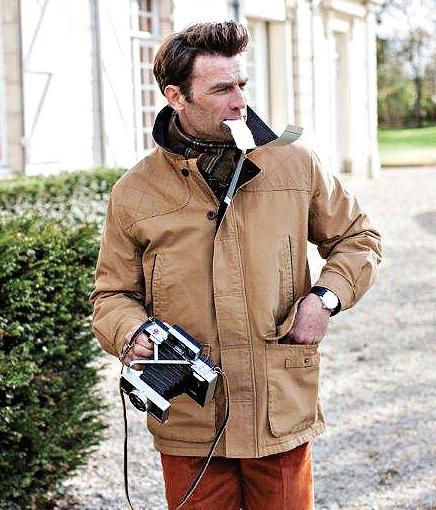

Pope Benedict XVI was deeply committed to advancing relations with the Jewish people. He was the first pope ever to invite Jewish leaders both to the funeral of a ponti and, above all, to the celebration of his own coronation.
Shortly thereafter he received the leadership of the International Jewish Committee for Interreligious Consultations (IJCIC), which I chaired at the time.
In his remarks he declared: “In the years following the (radical changes towards Jews and Judaism made by the Second Vatican) Council, my predecessors Pope Paul VI and, in a special way, Pope John Paul II, took significant steps toward improving relations with the Jewish people. It is my sincere intention to continue on this path.”
One might have considered John Paul II’s groundbreaking visit to the Rome synagogue; his homage in Auschwitz to the victims of the
Shoah; or his pilgrimage to the Holy Land, paying respects to the State of Israel’s highest elected political and religious leaders, and showing reverence for both Jewish tradition and solidarity with Jewish su ering, to be the atypical actions of a pope who had had a unique personal connection with Jews since his childhood.
That Benedict did not have these personal connections, yet made the same visits, confirmed these gestures as something to be expected of the pope, as a template for his successors.
In the first year of his pontificate, Benedict met with the American Jewish Committee, whose global interfaith outreach is my responsibility, and several other Jewish leaders including the chief rabbis of Israel and of Rome. In receiving the latter, he said: “The Catholic Church is close and is a friend to you.
Yes, we love you and we cannot but love you, because of the Fathers: through them you are very dear and beloved brothers to us.”
The pope also expressed his gratitude for the divine protection of the Jewish people that has guaranteed its survival over the course of
history. “The people of Israel have been delivered from the hands of enemies on frequent occasions and in the centuries of antisemitism and during the tragic moments of the Shoah, the hand of the Almighty sustained and guided them,” he stated.
Two incidents, however, cast a shadow over Catholic-Jewish relations during his eightyear pontificate.
The first concerned the expansion of using the Latin liturgy that included an Easter prayer for the conversion of Jews. Though he reformulated the prayer without the o ensive language, it still envisioned Jewish acceptance of Jesus. The pope responded both directly and through his chief lieutenants to critics that this was not a permit for proselytising Jews, to which the Church is opposed, and that it has no “mission to the Jews”.
The second was lifting the Vatican’s excommunication ban of the Society of Saint Pius X. The Jewish community was outraged that the group included a Holocaust denier. Subsequently, the Vatican explained that lifting the excommunication did not mean bringing them back into the Church.
Benedict went out of his way to condemn all Holocaust denial and rea rm his commitment to fighting antisemitism; but much damage was done to perceptions as a result of this episode.
As much as he was a true successor to John Paul II’s teaching, they were extremely di erent personalities. John Paul II was an extrovert, a supreme communicator and master of grand gestures.
Benedict XVI was an introvert and never lost his professorial manner, which has little patience for public relations. As a result, there was often a less complimentary perception of the man within some Jewish circles.
Nevertheless, Benedict XVI sought sincerely to fulfil his declared commitment from the beginning of his papacy, to continue the path of his predecessor in advancing Catholic-Jewish relations, as indeed his successor, Pope Francis, has continued to do.
Rabbi Rosen, a
chief rabbi of Ireland, is international director of interreligious affairs at the American Jewish Committee (AJC)

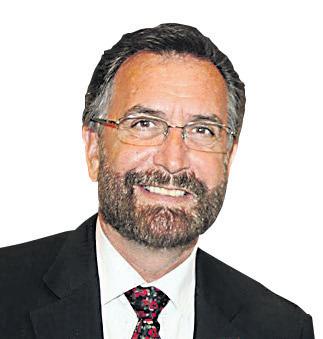
Iseem to spend a lot of time now writing farewells to old friends and colleagues – hardly surprising in my eighth decade. But some farewells are particularly poignant and one is that marking the passing of Rabbi Abraham Levy, the senior rabbi of the Spanish and Portuguese congregations in the UK.
My acquaintance goes back more than 50 years to my university days when he was an up-and-coming young rabbi in the Sephardi community and I was an extremely green undergraduate. The message he brought with him on a visit to Cambridge was that Judaism did not need to be an obscurantist faith confined to the ghetto. It could embrace modern western thought, both in the arts and in the sciences.
In support of that proposition, he cited the record of Sephardi Jewry. In its golden age in medieval Spain, its leaders developed
Hebrew poetry, bible study and Talmudic interpretation which they raised to new heights. In addition they immersed themselves in the study of the science of the time, producing a synthesis which stood in stark contrast to the narrow introverted culture developed by their Ashkenazi counterparts.
Our paths diverged but then crossed again 40 years later, by which time he was the senior rabbi of the Spanish and Portuguese synagogues and I was representing the Board of Deputies as its president.

His message had not changed – the Sephardi tradition was one of openness and inquiry. More, he advocated tolerance and respect for all groups even those with which he disagreed.
He was at the forefront therefore of interfaith work, for which he received a government honour but far more significantly he involved himself, despite his impeccable orthodoxy, in relations between di erent streams of the community, a much more tricky enterprise.
Our relationship was therefore pleasant. Apart from the a ection and respect we developed for one another over the decades,
his inclusivist message chimed well with the Board, which aspired to represent the entire community across the political and religious spectrum. Besides, the Sephardi communities had an a ection for the Board – after all, it was they who founded it.
 ❝
❝
The original members of the board in their loyal address to George III in 1760 self described as Portuguese Jews despite having lived here for two centuries. The first minutes of the board were in Portuguese and the term Deputies is simply an adaptation of the Portuguese deputados
Rabbi Levy cut a slightly old-fashioned figure with his top hat and formal garb, which reflected the formal character of the Spanish and Portuguese communities which he led.
In a deeper sense, though, he was old fashioned, having the traditional virtues of latitudinarianism, patriotism and civilised manners.
This extended to progressive Jews as well so that the Sephardi community some times attempted to act as a bridge between Orthodox and progressives. This was no small achievement. Relations within the
community were more delicate than those with faiths outside.
This narcissism of small di erences has disfigured the politics and culture of our community for many years. Rabbi Levy would have none of it.
After his retirement, he wrote his memoirs, A Rocky Road, a reference to his upbringing in Gibraltar. In them he reiterated his pride in these old-fashioned virtues.
Although he has a worthy successor in Rabbi Dwek, these virtues are generally on the decline in the Orthodox community.
Rabbi Levy’s voice was one of civilised tolerance.

There are rabbis who castigate their congregations for falling below their standards. There are those who are under the thumbs of honorary o cers. Some pander to their communities and some, over the years, acquire almost the status of saints.
My cousin by marriage, Rabbi Abraham Levy, who recently died at the age of 83, fell into another category. He was a class act.
He was born into the most distinguished Jewish family in Gibraltar; the Hassans. Sir Joshua Hassan served as first minister and mayor for more than 20 years. Abraham, his nephew, was sent to the prestigious Jewish school, Carmel College, in Oxfordshire when he was 12, and was much influenced by its headmaster, Rabbi Kopul Rosen. When the class was asked what they wanted to do when they grew up, Abraham Levy was the only one who said he wanted to be a rabbi.
Abraham Levy moved on to Jews’ College in its golden age and received his semicha in 1962 when the great teacher, Rabbi Kopel
Kahana, was preparing the students. He gained his PhD from London University.
This was a serious scholar.
Abraham Levy was, of course, Sephardi and he became the minister of the congregation’s synagogue in Lauderdale Road for the next 50 years. The Sephardim were the first Jews to return to Britain in Stuart times and were very highly regarded.
It was considered appropriate for many years for the Ashkenazi to stand up if a Sephardi entered the room. It was also said there were Sephardi families who sat shiva if their daughters married Ashkenazi boys.
Throughout the existence of the congregation, there have been serious arguments among the Sephardim. They e ectively dismissed their spiritual leader, Haham Moses Gaster, in 1917 and for long periods there was no haham at all.
Abraham Levy didn’t avoid periodic rows and when Haham Solomon Gaon resigned in 1977, he was not appointed his successor. He was only given the title of senior minister.
Outside the synagogue, however, he was the Sephardims’ representative at any state occasion when the Chief Rabbi was also invited. The great thing about Abraham Levy
HE ADVOCATED RESPECT FOR ALL GROUPS, EVEN THOSE WITH WHOM HE DISAGREED ❝was that he had no di culty fitting in. He was always immaculate and was to be found resplendent in a top hat; the kippah was not for o cial events.
During his ministry, he faced many problems. He wanted better schooling for Jewish children. The Sephardi community was not interested, so Abraham Levy went ahead on his own and created the Naima Jewish Preparatory School, in which he took a continuing interest.
When the Shah of Persia was overthrown, there was a mass exodus of Iranian Sephardi Jews to London and Abraham Levy was asked what the immigrant members could do for the synagogue. It now has what must be the finest sukkah in the country.
He was well known abroad. At a service in Madrid, he spoke in Ladino, the Sephardis’ equivalent of Yiddish, and delighted the congregation because the Spanish could
no longer speak what had been the classical language. Abraham Levy was so highly regarded for his work on multi-faith promotion that King Charles has sent a letter of condolence to the community regretting his passing. He was indeed a class act, and one that will be di cult to follow.
Rabbi Levy with Rabbi Joseph Dweck









Yavneh College in Borehamwood hosted a squad of netballers from Israel last week. The young athletes spent some time training and were then joined by Year 10 pupils for a friendly competition.

RSY held a choref or ‘winter camp’ for members of the Reform movement. Young people from London, Leeds, Manchester and Liverpool took part in four busy days of events at Kingswood Activity Centre in Wolverhampton, with activities including a Kabbalat Shabbat, zip-line and special New Year’s Eve silent disco.
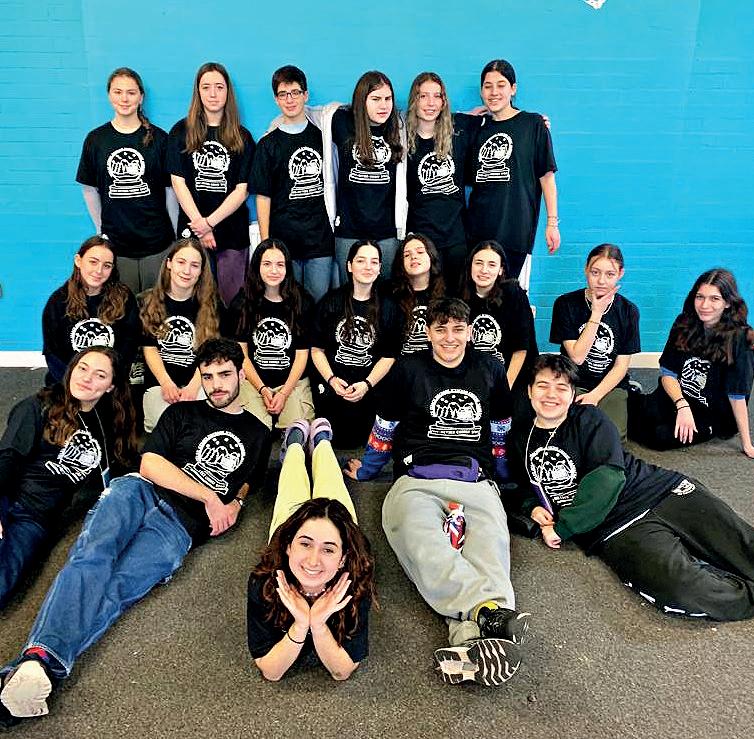
Allegra Kalfa (Year 5) is one of the eight graduates of the first stage of the inaugural North West Award. For all pupils in years 3 to 6 of North West London Jewish Day School in Brent, the award is a leadership and character development programme, designed to enhance a child’s personal growth and understanding of the world around them.



Year 6 students at Immanuel College in Bushey re-enact an exciting lesson they enjoyed carrying out earlier, in their school lab, when they learnt about the effects of adding white solid powders to water. Excellent experimental science!

Kol Chai Reform synagogue’s youth group in Hatch End is celebrating its first year. Run and organised by professional youth worker Simon Joseph, Sababa (meaning ‘cool’) meets on the first Sunday of every month and welcomes members and their local friends in one session for teenagers and another for 7–11-yearolds. Games, quizzes, outings and food have turned Sababa into a successful local hub where friends can connect, socialise and have fun.

At Norwood adult residential services’ colourful weekly scrapbooking class Julian dedicated his pages to the charity’s late patron, Queen Elizabeth II, with whom he was lucky enough to meet and speak during a visit she made in 2008. Julian remembers her as showing great interest in everything he told her, that he learned to call her “ma’m, to rhyme with jam” and that he was told he didn’t have to bow to her, but that he chose to do so anyway.


A look
An Apprenticeexpert on the new series Waze of seeing
You might not have heard of the American comedian Alex Edelman, but if you want a recommendation ask Jerry Seinfeld or Billy Crystal. The illustrious comics made a point of seeing Edelman’s show, Just For Us, at New York’s Soho Playhouse, so you’d be a fool to miss him now he’s at the Menier Chocolate Factory in SE1. And Alex is in for the long haul as the show runs until 26 February, which would be daunting for most US jokers on the cusp of stardom, but not one who honed his act in the UK.
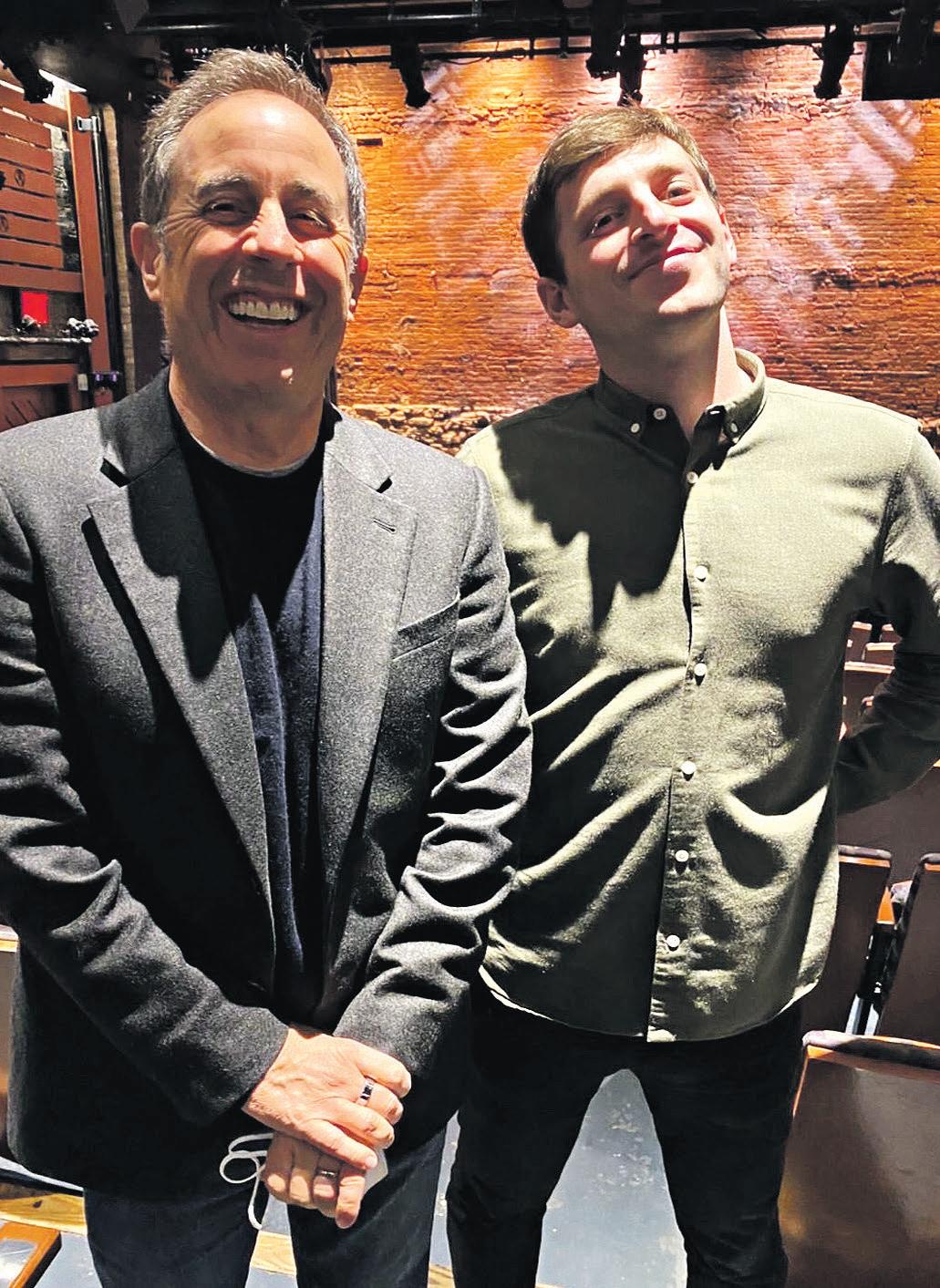

“The UK is the reason I am a stand-up,” says the diminutive 33-year-old, who has been coming here for big chunk of time since 2012.
“I came here to work on shows, and I actually dated a lovely British woman for a while, but I workshopped this show in the UK and took it to Edinburgh in 2018, where it was nominated for the main prize. It was then developed at the Soho Theatre in London and it’s directed by a Brit, Adam Brace, so London is its spiritual home. For me it’s a very British show.”

Without wishing to contradict the smart and prudent Alex, Just For Us is actually a very Jewish show for multiple reasons, though the fact that David Yosef Shimon Ben
Illouz Haleivi Alexander Edelman is his birth name is a big clue.
Announcing this impressive moniker in his show would be a step too far for funny men of the faith in Blighty, but this is just the tip of the heimsche iceberg for Alex, as Just For Us is loaded with references about his inescapable Jewish identity – “I look Jewish” – which he wears with pride, but ridicules much like a millennial incarnation of the late, great Jackie Mason. As he says on stage: “When I meet someone who tells me they used to be a Christian, but gave it up, it blows my mind because Judaism does not work that way. It is the Hotel California of religions.”
Snappy with schtick, Alex also takes risks with his comedy by stepping outside his comfort zone to experience things that will eventually fuel his material.
“All the good stuff that’s happened to me generally, is because I wound up somewhere I didn’t belong,” says the comedian raised in an Orthodox home, ahead of attending an evening of Christian worship in Virginia. That what happens at the clappy sing-along winds up in a future show is inevitable. Just as it is that meeting of white supremacists he went to in New York features in Just For Us
“I went there after receiving antisemitic comments on social media. People asked me ‘Why did you go?’ and I told them I went because I wanted to know what people who don’t like Jews say when they’re hanging out with each other. Finding people whose viewpoints are that Jews run the world or that white people should be replaced is not that difficult. Sadly they have become very mainstream.
“I worry sometimes that we’re all just stuck in these environments that are so familiar and we’re locked in. We fear that leaving them will change us in negative ways. But if I’m at a meeting of folks who don’t like Jews, am I the most Jewish person in the room? Or am I the least Jewish I could possibly be in that moment, if I’m sitting
there listening? It’s like a Schrödinger paradox in which you can be very Jewish and very unJewish at the same time. There are unusual dividends to this, so it’s a worthwhile endeavour to wind up in those places. Frankly, I wish more people ventured outside of their natural habitats.”
Alex’s natural habitat is clearly the stage and his hanging with the supremacists has created so much interest he has become a regular on the chat show circuit. Not revealing the outcome of his risky outing during our chat certainly whets the appetite sufficiently to boost ticket sales and for Jewish audiences it’s a no-brainer. Who else doing a one-man show in London has a brother who can claim credit as the first Orthodox Jewish man to be four-time Israeli National Champion in the skeleton event in sliding sports and part of the Israeli team at the 2018 Winter Olympics? Adam or AJ Edelman, aka the Hebrew Hammer as he is known Holyside, is Alex’s brother, and he gets more than a mention in the show. His other brother, Austin, not so much.
“I’m very proud of him,” says Alex, who is in a relationship with Jewish comedian Hannah Einbinder, who stars in the series Hacks. “He lives in Israel and we have different views about it and argue all the time, but yeah, he’s wonderful and a good brother. He’s seen the shows a bunch of times and has opinions on it and doesn’t back down from telling me what he thinks. So we fight like brothers, but it’s just verbal jousting.”
As for their parents Cheryl and Elazer, a renowned engineer, scientist and cardiologist, when it comes to bragging rights, raising an Olympian and a comedian takes top trumps at any dinner party.

“My parents are wonderful and have urged me to do something I might enjoy. People do ask, ‘Are your Jewish parents okay with this?’ and I say of course they are. I think there’s this idea that Jewish parents only want their kids to be doctors or lawyers, but in my experience, that’s so not true. They want so much more for their children.
“Maybe the cycle of immigration is that you work hard in a tough manual labour job so that your kid can become a nice professional, so their kid can become a DJ and squander all of the hard work that everyone has put in.” If Alex is squandering it, he is doing it very well.
• Tickets: www.menierchocolatefactory.com
It’s the name of a one-man show that no one should miss. Brigit Grant talks to the mirth maker who could be the next Jackie MasonDoubly funny: Alex with Jerry Seinfeld Brother Adam is an Olympian Alex Edelman with girlfriend Hannah Einbinder, a comedian and actress
What do EmilyinParis’ gorgeous new boyfriend Alfie (Lucien Laviscount, 30) and former boy band (Northern Line) member Ziggy Lichman have in common? Not only were they both in BigBrother(although not together), they have teamed up to open restaurants in London. Ziggy (42), who , saying that his family were not religious and he wouldn’t be expected to marry a Jewish girl. Their newest venture is a north London speakeasy-style ‘five-star dive bar’ in Kensal Rise called The Wealthy Beggar, serving up tropical cocktails and Pan-Asian tapas. There’s live music every Wednesday, DJ sets and weekend parties. Pre-pandemic the pair opened The Shop, also in Kensal Rise – a kooky cocktail bar that served drinks in jam jars and milk bottles, but it closed in 2020. Maybe Emily will cross the channel for a cocktail soon. www.thewealthybeggar.com

grew up in Totteridge and went to Habs, spoke out about his Judaism on he and
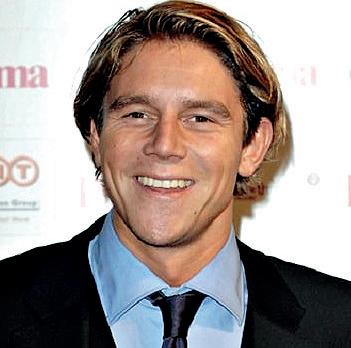




Dockland’s Excel was awash with feathers, heels and hair last weekend when thousands turned up for World of Wonder’s DragCon UK which was opened with a ribbon cutting by the drag queen RuPaul. For JewishNewscub reporter Madison Grant-Gold, who has watched every series of BBC’s RuPaul’sDragRace,the convention was an opportunity to chat to Jewish drag queens, among them Joey Jay, who describes his persona as a ‘Jewish princess’.
Based in Phoenix, Arizona, Joey, who starred in season 13, told Madison: “I grew up Jewish, went to Hebrew school and Hebrew camp, but we were really, really poor, so I couldn’t a ord to get a barmitzvah.” His bubbe reassured him. “She was Orthodox and told me I could get a barmitzvah at any age, so until that happens I’d say I’m Jew-ish.” Joey also had some advice for those who do drag, but are afraid to share it. “Do what makes you happy,” he said. “Just have an open mind. No one should tell you how to live your life.”
The convention, which celebrates the art of drag and self-expression, is a chance for those who do drag professionally or just for fun to rub padded shoulders, including drag artists with Down’s syndrome who call themselves Drag Syndrome.

Drag Syndrome.


Professor Peter Lantos is one of the last Holocaust survivors living in the UK. He and his family were forced to leave their home in Hungary when he was four, and a year later they were sent to BergenBelsen. As a child, he had thought they were setting out on a grand adventure, only later realising that they were in the midst of tragedy. By the time the war ended, he had lost 21 family members. A er the war he studied medicine in Hungary before moving to the UK in 1968, where he became a medical researcher.
Told from the perspective of the five-year-old Peter, TheBoyWho Didn’tWanttoDieo ers a unique perspective into the Holocaust, from his wonder at the trains that took them away to his mother giving him school lessons in the bunks at the camp. This book is for children aged 10 and over but can, and should, be read by an audience of any age. Peter believes that his story can educate children about mistakes of the past as well as give them hope for the future. TheBoyWhoDidn’tWanttoDieis published by Scholastic, £7.99


There has been so much talk about Steven Speilberg’s fictionalised screen version of his childhood that you probably think you have missed TheFabelmans.Wrong ! It opens on 27 January, which means you finally get the chance to see his deeply personal portrait and coming-of-age story about a young man’s discovery of a shattering family secret and an “exploration of the power of movies to help us see the truth about each other and ourselves”. That’s what they have told us and, as Spielberg has collaborated on the script with Tony Kushner, it can only be good. The film already has a 94 percent score on Rotten Tomatoes due to America seeing it first, and the reviews are good, with one praising Spielberg for his “ability to find the heart and humour of his origin story without it seeming self-aggrandizing”. Go and see it for yourself.

Another Jew at DragCon UK was Michelle Visage (Michelle Lynn Shupack), a veteran judge on the show, who loves it when there’s a Jewish contestant. “It’s an automatic identity,” Michelle said. “I love it when their faith becomes part of their [drag] identity. It’s mishpocha.”

Before Joey said fairewell, he had a final piece of advice for drag novices. “Prepare to be ugly in the beginning. I took a picture of myself every time I painted my face for the first six months, and it was wild. But that’s how you learn. One day you’re going to think, ‘I’m fierce right now.’”
Explore the story of émigré musicians from Nazi Europe at an exhibition at the Royal College of Music in Kensington. Music,Migration&Mobility–theStoryofÉmigréMusicians fromNazi-EuropeinBritain explores the lives and legacies of musicians who fled the Nazi regime and the ravages of war. Britain o ered a creative home where they could thrive. Among them were the composer and former RCM professor Joseph Horovitz (best-known for his 70+ television and film scores, including that for RumpoleoftheBailey), who died last year; cellist and surviving member of the Women’s Orchestra of Auschwitz Anita Lasker-Wallfisch (who founded the English Chamber Orchestra); the artist, musician and broadcaster Gerard Ho nung; broadcaster and writer Hans Keller; the composer Mátyás Seiber, and many others who would play a key role in the development of major British institutions including Glyndebourne Festival, the Royal Opera, the BBC and the RCM itself, and whose work resonates today through film, TV and art.
From annotated scores and costumes to recordings and concert programmes, alongside photography and personal items and firsthand reflections, visitors can delve into the lives and experiences of these musicians. Music,Migration& Mobility is at the RCM Museum. Entry is free and tickets can be booked online.
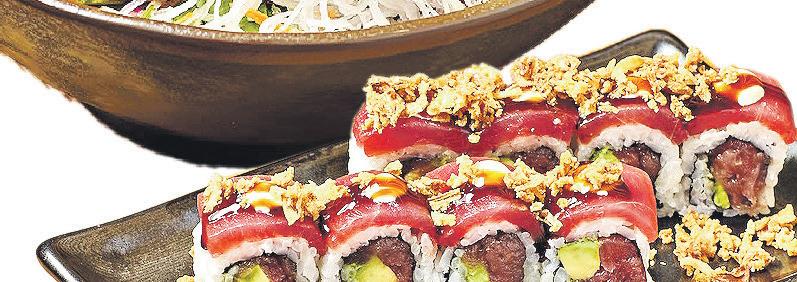


Idon’t tend to go out for lunch during the week. But if it involves Kiyoto’s famous sashimi salad with its ‘secret recipe’ dressing, plus a chat with the owners, I’m certainly not going to turn it down. And so I find myself on a sunny Thursday lunchtime in Kiyoto’s large, bright, corner restaurant in Cockfosters sitting opposite brothers Jason and Adam, who founded their restaurant brand seven years ago.

Both boys left Immanuel College after GCSEs, Jason to work in a bank and Adam to do telesales, which he says was the best education he had –“It taught me so much”.
A few years later Jason, now 37, was a city trader, thriving on the adrenaline rush that comes with the highs and lows of making and losing large sums of money. Adam, 33, was working in China manufacturing beauty products for high street multiples and when he sold the business he came back to the UK to embark on a new venture – bringing sushi to the suburbs, where it was curiously missing despite its growing preponderance in central London.
“At the time you needed to travel into town for great sushi and pay high prices at places like Roka or Zuma,” he says. “I wanted to serve the same quality but make it accessible.”
Jason, who lives in Letchmore Heath with his wife and two daughters, aged seven and four (with a third on the way), quit his job to join him and Kiyoto was formed. They saw an empty unit in Borehamwood flanked by cafes and bakeries.
“We could see that the high street was opening up and we knew there was no other sushi in the area. We had a dream to create a venue where sushi was made fresh to order at an open sushi bar, where the customers could watch the food being made in front of them,” says Adam.
They recruited a chef from another Japanese restaurant. “What was so incredible was that we had a couple of great sta in the very beginning. They had a lot of experience and they believed in us. Some of them are still working with us seven years later,” says Jason. “We look after our sta – we like to think we
are good employers. We pay them well and they know they can come to us if they have any issues.”





out diners. Floor-to-ceiling windows make it bright and airy while wooden tables and wall features add warmth. Later this year Kiyoto will open its fifth branch, in Hatch End.
Chomping down on delicious crispy rice cubes topped with tuna tartare, I note that the restaurants are all in largely Jewish areas. What is it with Jews and sushi, why do they love it so much? “I’m not sure it’s just Jews, but they do love it,” says Jason. “It’s such a clean meal. You don’t feel unhealthy afterwards, but you do feel full.”

Adam says: “Food fashions come and go but it’s had the longest run. It’s taken over from Chinese, of which there aren’t
from many good ones around.”
The menu is the same across all the restaurants.
At first Kiyoto didn’t even a well. It doesn’t
spoiled and
At first Kiyoto didn’t even have a kitchen so they weren’t doing any hot food. “The idea was to run purely a takeaway,” says Jason. “Sushi is one of the best takeaways because cold food travels well. It doesn’t get spoiled and the presentation doesn’t get ruined.”
It success was immediate. “From the beginning we wanted to do good food at good quality at a good price and I think that’s what we did,” says Adam, who lives in Bushey with his wife and two sons, aged four and six months. “Once we had the facilities to make hot food we found that it sold really well. We keep it simple – we haven’t got a large menu, just dishes like goyza, teriyaki chicken, katsu…. However, even in winter the cold food sales outweigh the hot.”
The brothers opened a second unit in Mill Hill about 18 months later. A slightly larger unit meant that there was more of an eat-in trade but takeaway was really popular. “We choose our areas carefully,” says Jason, while I’m tucking in to my sashimi salad. “In Borehamwood there are a lot of families in the area –the school (Yavneh) is a big attraction – and of course it’s central to Radlett, Shenley, Elstree and Bushey. Mill Hill is a busy high street all day and night and it’s a destination, plus you’ve got a lot of people working in both areas.”
The next location was West Hampstead, which opened in 2019, and then in summer 2021 they took over an estate agents’ o ce in Cockfosters to open a 32-seater restaurant with more of a restaurant feel than its predecessors, which are quick in-and-
every the same process so we get consistsays. “We personally oversee the whole process literally
“Everything is made fresh every day using the same process so we get consistency across the branches,” Adam says. “We personally oversee everything we do from morning to night ourselves, the whole process literally – we keep an eye on all the deliveries and the prep.”
I wonder whether the boys
says Jason, decisively. “I can do it.”
I wonder whether the boys would be able to step in if they were short-sta ed. “Er, no!” says Jason, decisively. “I can make a roll,” says Adam. “I’m not quick or that neat but I can do it.”

ners. A caterer last week ordered 15
Jason takes care of the operations and Adam is the

Kiyoto also supplies caterers and party planners. A caterer last week ordered 15 platters – that’s more than 1,000 pieces of sushi. Jason takes care of the operations and Adam is more hands-on in the stores. With a general manager on the team they don’t work antisocial hours any more but they do make sure they are not away at the same time other than for a couple of nights. Adam particularly found it hard to relinquish control, but with young families they needed a better work-life balance.

I ask whether they would ever consider opening a restaurant in the West End. “Never say never. We get quite a few emails from customers asking if we’d consider opening in their areas, which is a compliment,” says Adam. “One thing we would never consider is franchising, as we believe this would compromise the quality as we wouldn’t be in total control of our product. We are so involved in the day-to-day running of how everything works.”
Whichever route they take next I hope the sashimi salad goes with them.
their
The Apprentice is back on our screens – and having been a previous candidate – I’ve been particularly interested in watching the new series.



I – rather naively – signed up to the show with the genuine goal of securing an investment and scaling up my beauty brand, Hollywood Browzer Beauty. But how wrong I was to think for a second that this show, and its producers, were focused on creating a factual entertainment show that’s all about business, as opposed to just another slice of cringeworthy reality TV.



For 10 years, before I went on the show, I watched it religiously. Like many other viewers, I enjoyed it enormously, even the car-crash moments and the often-unexpected firings. I would think to myself that I could do so much better than they’ve done. Just give me a chance and I can show Lord Sugar my business acumen, and the business I’ve built myself from the ground up.
However, after experiencing what it’s really like being on the show, I now realise that the car crashes and disaster moments are usually caused by manipulation on the producer’s part. That said, I did sit back and try to enjoy last week’s episode one without any preconceived notions.
This season has certainly not started with a bang. The most exciting thing in the episode was the location, with the contestants jetting o to sunny Antigua. They’ve clearly upped the budget since our first episode, which, by contrast, was filmed in Portsmouth. The return of Claude Littner caused a bit of a buzz but, aside from that, the episode fell quite flat.
So we saw yet another tourism task, with the same elements as many previous seasons: selling tickets to an excursion, boys versus girls. I don’t know why the producers do similar tasks every year, just in a di erent place, with di erent candidates.

They’re clearly trying to tap into the Love Island market – if the location didn’t make that clear enough, just look at the line-up of candidates. Many of them appear at first glance to be much more suited to lounging around a pool all day drinking mimosas and getting texts from boys who would break their heart in a second to secure that Boohoo Man brand deal.
The men on this year’s line-up are a lot stronger than on my season. It was clear from the very beginning of the episode that they were going to win the task. They were leaps and bounds ahead of the women, who opted to bicker on the beach, costing them


up for project manager until the task was synergistic with your skill set. I followed his instructions, but he then twisted what I was doing and suggested that I was hiding as the sub team leader to avoid the project manager role – when in reality I was waiting for where my skill set would best serve.
valuable time they could have used to sell their tickets.
I miss the old days of The Apprentice, where the candidates actually had valid business experience and skills; candidates who stood a chance in the real world of business, as opposed to the now dumbeddown cohort, cast for their low IQs and lack of real business knowledge or experience.
I took each task seriously, as if it was my business that I was working on. I was sub team leader in four out of the six tasks that I was a part of on the show. I felt that, as the second in command, I was always where I should have been, until I was ready to be project manager, so that I could lead and contribute significantly to every task but not overstep outside of my strengths.
Lord Sugar even said in our very first boardroom meeting not to put yourself

I did in fact put myself forward to be project manager in week two, but this didn’t make the final edit, so the only people who know that are my fellow candidates and the Apprentice team.

Ironically, the tasks that followed in the weeks after my firing included TV shopping, creating a baby food brand and arranging a corporate away day at Silverstone. I’ve been a TV shopping presenter on various channels around the world, including QVC UK, for many, many years, selling both my own beauty products and others. I was the only candidate who had a young child – and therefore had much more experience with baby food. I also used to work at the Classic Car Club in New York and it was my job to organise the same type of awaydays for the members as they did during the Silverstone task.
Had Lord Sugar given me the opportunity to be project manager, I think things would have turned out a lot di erently for me, but of course the producers were fully aware of my background and skill set prior to filming, so it’s interesting that I only made it to a certain point and all the tasks I would have really excelled in came up afterwards.

One to watch: REECE
would have turned out a lot di erently for



I think Emma being fired first was the right decision. There are some really strong contenders on this series and I hope they will show us what they’re made of as the episodes roll on. Based on the first episode, however, and my all-knowing eye from having been on the show, I predict that the ones to watch are Reece, Rochelle, and Shannon. However, aware that time on the show is also based on entertainment and cringe value, I would wager that Joe, Gregory and Simba will be gracing our screens for quite a while longer.


that the ones to watch are Reece, Rochelle,
One to watch: SHANNON





Genius Jake says: Happy new year, everyone!
January is not only the first month of the calendar year – it has also given birth to a big idea. Veganuary is a yearly challenge that started in 2014, where people try being vegan for the month. Being vegan means not eating animal products (so no meat, fish, eggs or dairy) but instead eating plant-based foods (vegetables, grains, fruits and nuts). Last year, more than 629,000 people from 228 countries and territories took part in Veganuary, breaking all previous records! While many people choose to go vegan for health reasons or religious beliefs, lots of people also do so because they think it’s better for the planet.
Animals eat a lot and take up a lot of the earth’s resources. As food, plants use fewer resources. So if we don’t produce meat, milk or eggs, then a lot of food, land and water can be saved. But being vegan doesn’t suit everyone and we need to make sure we get lots of nutrients from a variety of foods for our growth and development. There are lots of other things we can give up to help the environment – I’m going to give up driving with my mum to school and try to walk together instead, and I will try not to use plastic bottles. The smallest change can make a huge difference.

To help save our planet I would use less paper. I have so many gorgeous notebooks which I really enjoy using but I also have a laptop which I can use to write instead. I don’t think it’s necessary for us all to use so much paper. I also think planting trees is really important and if we use less paper, fewer trees will be cut down. Therefore, we will have far more trees, which will help keep our air clean.








Authorities in the USA have approved the sale of chicken grown in a laboratory. Upside Foods will take cells from chickens and grow them in a lab, to make a meat product that does not involve killing animals. Other countries might now get permission too. That’s good news for Israel, which has become a leader in lab-grown meat and alternative protein technologies.



The family favourite entertainer Dov Citron, aka Captain Calamity, is returning to his roots with a show at the Watford Palace Theatre this month (14 January).

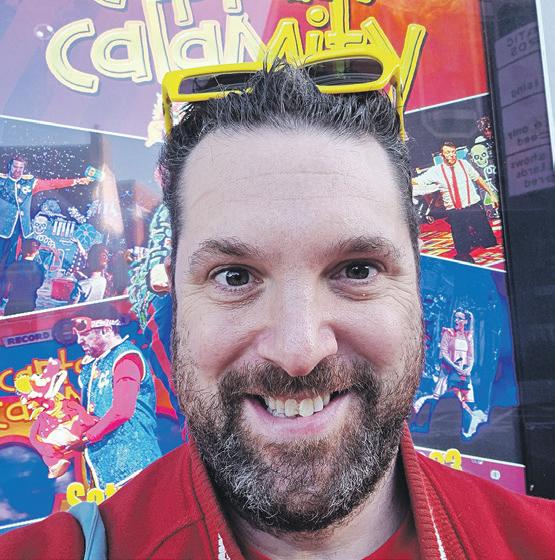
Calamity, known for his mind-blowing bubbles and silly science, cut his teeth on stage at the Watford Palace, playing a variety of roles including Napoleon
Animal Farm Twenty-five years later he’s back doing what he does better than most – wowing audiences with a wild mix of magic and mayhem.
He tells JN Junior: “I had always hoped I would make a return to the Watford Palace at some point in my career. This show feels like a ‘homecoming’ celebration. Expect family fun and insanity featuring marvellous magic, baffling balloon bursting, beautiful bubbles, silly science, gigglesome games, cheeky tunes and custard pies.”
bubbles, Ideal With Ivor Baddiel




It’s your last opportunity to experience a Harry Potter winter wonderland as Hogwarts in the Snow comes to an end. The film set has been transformed and fans have just a few more days to see the Great Hall in a new light. Until 16 January. www.wbstudiotour.co.uk
If you’re in Manchester, head to Van Gogh Alive. The exhibition lets visitors immerse themselves in Van Gogh’s artistry. At MediaCity Salford Keys until 27 February. www.vangoghaliveuk.com/mediacity/
The Israeli-based theme park and website (above right) that opened in Camden last year, is one to try. It has a drop tower, bumper cars, carousels, soft play areas and a rollercoaster. Plus waffles and ice creams. www.babylonpark.com




One for younger audiences, Burglar Bill is on for one day only at the Arts Depot. Janet and Allan Ahlberg’s characters are brought to life on stage. Sunday 22 January. www.artsdepot.co.uk
Head to the South Bank to help untangle the Colour Monster’s messy emotions through the wonder of orchestral music at FUNharmonics Family Orchestra with the London Philharmonic Orchestra at a unique concert experience for ages five and over. Royal Festival Hall, 29 January. www.southbankcentre.co.uk
hen serial entrepreneur Uri Levine, the co-founder of Waze, su ered a serious leg injury skiing in 2021, many questioned if he would ever ski again. But giving up was “not an option”, says Levine. Perseverance is a trait he lives by and on which he places the utmost importance when it comes to building a successful startup.
Levine, 57, has built several. Known for helping users to avoid tra c jams, Waze was born in 2007, initially to help to avoid congestion in Tel Aviv, Levine’s home city. Now it refines tra c routes using real-time information from 150 million monthly users around the world.

When Waze was sold to Google in 2013 for $1.15bn, Levine left the next day to focus on solving more “big problems”. His next unicorn (a company that reached valuation of more than $1bn), Moovit – a kind of Waze for public transport – is used by more than 750 million
individuals worldwide, and was bought by Intel in 2020 for $1bn.
Levine has about 10 active startups in his portfolio, each successfully addressing a single problem. And he wants to help others do the same with his new book, Fall In Love with the Problem – Not the Solution, a Handbook for Entrepreneurs, a guide for those wishing to build their own highly valued companies.

The book was inspired by Levine’s late mother, who suggested he write it after he gave a
talk at her assisted care facility in 2018. “It is fulfilling my destiny of making a bigger impact. Maybe some would call that tikkun olam (repair the world),” he tells Jewish News Endorsed by Apple co-founder Steve Wozniak among others, the book shares Levine’s nuggets of wisdom and the winning formula for success.
“There are probably very few factors that dramatically increase the likelihood of being a successful startup, but perseverance is at the top,” says Levine, who recently returned to the ski slopes.
“Running a startup is a long and challenging journey – a rollercoaster of ups and downs, and one of failures. Think of it as three main journeys: maybe the first phase is product market fit and the next one is scale, and then business model, or maybe it is in a di erent order. It’s an ever-changing journey and only once you have
figured out these three main journeys can you add significant value to everything else.”
Levine has multiple pieces of advice for entrepreneurs. Among them: “Fall in love with the problem not the solution, fail fast, make decisions based on conviction and always listen to users and customers.”
The father of five credits his success in part to his six years in the Israel Defense Forces, as well as to his parents. “As a child I was a bit of a troublemaker, always exploring things. I never took anything for granted, questioning everything and coming up with crazy ideas.
“My dad would say: ‘Give it a try.’ So the idea of trying and failing was with me since I was a kid. When I was in the military, we were in a tough neighbourhood but there were a lot of good things to come out of this that help you later as an entrepreneur – you mature faster, establish leadership skills and a sense that giving up is not an option. The IDF was an evolution of me from a troublemaker into an o cer.”
Now a serial entrepreneur, investor, mentor,
educator and author, Levine is committed to spreading entrepreneurial thinking, sharing the lessons he has learned en route.
There were times, he admits, when Waze nearly died. “When we were looking to do our second financing round in 2010, we didn’t have enough traction outside Israel, and while we were trying to figure things out we were running out of money,” he remembers. “We were about a month away from running out but were able to raise the capital.”
Levine founded Waze alongside fellow Israelis Ehud Shabtai and Amir Shinar. All three had at some point worked at technology company Comverse.
“We were all incubating similar ideas and then came to the realisation that in order to
the solve tra c jams we needed some knowledge of tra c jams.” The next year was spent develThe Waze screen, seen on a smartphone, finds the best route to an address

Uri Levine sold his acclaimed tra ic jam-beating startup to Google for $1.5billion, but hasn’t stopped there, he tells Candice KriegerUri Levine has a brimming portfolio of startups
W❝ Mail Boxes Etc. Golders Green 78 Golders Green Road London, NW11 8LN 0208 455 4848 info@mbegoldersgreen.co.uk
oping the concept, before launching commercially in 2008.



Waze relies on its millions of users to submit updates on accidents, roadworks, jams and so


this realtime data to calculate the best possible routes for its drivers. When Google bought
With Candice Krieger candicekrieger@googlemail.commillion users. There are more than 700 million to date. Was it the right decision to sell? “When you make a decision, you don’t know what it would be like if you had chosen a di erent path so by definition, it is the right one. Yes, Waze is worth way more today than it was then, but what we don’t know is if Waze would have become what it is today without the decision we made,” notes Levine, who unsurprisingly “hates tra c” and mostly uses his bike to get around. “I’ll check the Waze application to figure out if it’s quicker to take my bike!”
Google’s acquisition of Waze was a significant moment for Israel, sometimes known as ‘the startup nation’. There are now close to 100 unicorns in the country, with a total value of $255bn, placing it second in the world behind the US.

Levine says: “There are way more unicorns than 10 years ago. Waze was a beacon to the rest of the industry and acted as a target, with many entrepreneurs telling me they want to be bigger than Waze, and I hope that they will.”
Israel is credited as having
more startups per capita than any other country. “There are multiple reasons: the culture, a lower fear of failing, people are willing to try, favourable and supportive regulations that encourage investors, and there are lot of engineers with experience.”
that experience.” a price changes; and agritech

Levine’s startups all have a common goal: solve a problem, create value and make the world a better place. There’s WeSki, an online booking platform for custommade ski holidays; FairFly, which enables significant savings on plane tickets by tracking price changes; and agritech (agriculture and technology) company SeeTree, which helps farmers and tree growers to track their trees’ health and productivity. “And I assume there will be many more that I will help create and build in the future.
many more that I will help create
“The world is full of problems and the ones I can figure out a way to address, I will.”

• Uri Levine’s Fall in Love with the Problem, Not the Solution: A Handbook for Entrepreneurs (Watkins Publishing) is published on 17 January and available to order now on Amazon





long for a new leader to arise with an agenda of ignorance.
The commentaries do di er.
“A new king arose who did not know Joseph.” This moment is the start of the enslavement of the Jews in Egypt, as we read about in this week’s parsha, Shemot Joseph, with humility, patience and an appreciation that his gifts were God-given, enabled the transformation of Egypt, giving the country the physical and psychological resilience to weather the forthcoming famine.
Yet, given that it was politically prudent at the time – after all, the Jews were “multiplying, flourishing, increasing, becoming stronger; the land is full of them”– it did not take
Rashi brings sages who say that the king was in actuality new, or that he merely “became renewed in his decrees” – but, either way, Pharoah’s ignorance was not incidental.
National memory is part of national identity, and for a recent prime minister of such standing to be erased from the history books, the Joseph story and thus the Jewish story had to be erased from the founding myths of Egypt.

We are naive if we assume that memory is fixed; history is not merely the collection of facts that brought us through serendipity or the vicissitudes of time to where we are today, but is the fabric of our being as individuals, communities
and nations. There is no classically Jewish word for history; as Haim Yerushalmi describes in his seminal work Zakhor, Judaism is “as a technology of memory, a set of practices designed to make the past present”.
Our Jewish life, most notably the Seder but that is one of myriad examples, is about inculcating the present with a living past, a communal consciousness in which even trivial acts become laden with the God–intoxication of our ancestors, and our values are guided by lessons learned from prophets and priests, from sages and kings, and from the wise and the weak.
King Solomon, the wisest of all men, wrote: “The more knowledge, the more pain.”


We live in an age when there is, seemingly, more knowledge than
ever before: we are bombarded with a constant flow of information. Yet we also seem to be in an age when it is easier to be ignorant, and this ignorance has in so many ways led to marginalisation, exclusion, su ering and worse.

Adam was not forbidden to eat from the Tree of Knowledge; he had
to eat first from the Tree of Life. Had he done so, the fruits of knowledge would have not been the elixir of death but of life. We may have been exiled from the Garden, but God leaves us still with access to the path to the Tree of Life. Ignorance is deadly, but a commitment to life is the path that will protect us all.
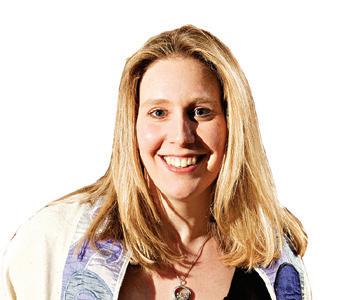
bility, and with a little less responsibility comes an easier package and a little less privilege.
Torah teaches us that, all too often, the second-born fought the system and won.

he think these interviews and his book will achieve? Are the people who he thinks are supporting him actually manipulating him for their own gains?
I’m struggling. As a British Jew, I’m programmed to support the underdog and my heart bleeds for Prince Harry. He couldn’t be expressing his pain more explicitly (for explicit, read: ‘in more of an American fashion’).
Yet, as a British Jew, I know the importance of the structures into which we are born. A person’s birthplace in the royal family sets their role for life, and no one is to blame. That person lives out their birthright (or lack of one) as a badge of honour.
With privilege comes responsi-


Our patriarch Jacob tricked his brother out of his birthright, using deception to fight the system. And yet I am reminded of his treatment by his Uncle Laban when he sought refuge. Does Harry think he has found refuge in the United States and will be protected by the warm embrace of American society if he speaks its language, bares all, and transforms himself from a tightlipped royal into someone who wears his heart on his sleeve?
Jacob fled his own behaviour in Laban’s home and yet the tricker became the tricked when he was forced to marry the wrong sister. Who is advising Harry? What does
The royal palaces’ communications teams are so di erent from the celebrity PR machines that surround Harry, and will never respond in a Hollywood style. Yet I so hope that the drawbridge is not raised permanently.
It took Jacob to need to cross Esau’s land for the moment of reconciliation to take place. It didn’t come from Jacob feeling guilty for the betrayal; it was a moment of self-interest.
What will be the moment of selfinterest that causes Harry to reach out to his brother appropriately? When it happens, will the brothers va’yishakayhu (bite or kiss)? That word in Genesis 33:4 has flum-
moxed the commentators for generations. Did Jacob and Esau fall on each other and bite or kiss?
I suspect the British and American public will always be in the position of the ba ed commenta-

tors: we will never really understand what’s going on behind the scenes. But I hope that one day Prince Harry, like Jacob, will need to cross his brother’s land, and that they too will kiss and make up.

Mosaic Jewish Community has opened its brand-new Synagogue in Stanmore. It is a unique concept of providing religious services and community facilities for three different strands of Judaism – Reform, Masorti and Liberal - under one umbrella.
The role focuses on providing direct support to members, their carers and families, as well as supporting and overseeing the work of volunteers from the community as part of a multi-disciplinary team. Together with our other part-time Coordinator, you will work on a range of care and support services which take into account the present and future needs of the community. This is an exciting opportunity to build on and develop new projects that cover a broad spectrum of community support services while respecting differing religious practices and customs. You will need to be able to work closely with the rabbinic and lay leadership and volunteers and know how to access social care and communal provision within the Jewish and wider communities, including statutory services. Team management and communication skills with experience in safeguarding and data protection compliance will be essential in this role.
21 hours per week, ideally to be worked Monday, Tuesday and Friday; salary pro rata £32,000 FTE.
Please visit https://choosemosaic.org/all-news/news/community-careco-ordinator/ to read the full job description and person specification.

If you would like to join us and make a significant contribution to the Mosaic Team by planning, organising and participating in communal activities, please send your CV and a covering letter explaining how your skills and experiences meet our requirements to recruitment@choosemosaic.org

A stimulating series where our progressive rabbis consider how Biblical figures might act when faced with 21st-century issues
Our trusty team of advisers answers your questions about everything from law and finance to dating and dentistry. This week: Best way to find a new mortgage, switching jobs after a long time in a role, and handling a granddaughter’s deafness
JACOB BERNSTEIN FINANCIAL SERVICES (FCA) COMPLIANCE RICHDALE CONSULTANTS LTD.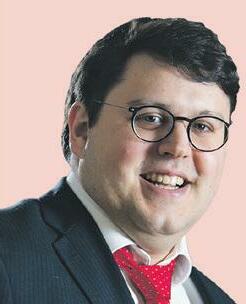
I’ll shortly require a new mortgage and accompanying buildings insurance. Can you can advise whether it’s better to use a local broker or to source these myself using an equivalent online tool?
Dan
There is no definitive answer to this as both routes have their pros and cons, which depend on a variety of factors, but mainly your personal circumstances.
A key consideration is the panel of lenders/ insurers which the broker or “online tool” has access to. You may be familiar with a term
used by brokers in that they are a ‘whole of the market’ broker. This means that the list of products they have access to represents the whole of the market, but does not mean they have access to and/or advise on absolutely every product on the market. You may find that an online tool has access to a greater variety of products but may not have access to some of the very niche providers. The benefit of a broker versus an online tool would, therefore, depend on your personal circumstances.
An extra consideration is that you are likely to benefit from the human element of using a broker rather than an online tool.
On a personal level, I use a broker I know and trust, while also doing my own research online.

On the rare occasion I see a product online I believe to be more suitable than a product recommended by the broker, I always query this with my broker (and usually find there is a reason why that product wasn’t recommended).
and daunting. You have probably been operating within your comfort zone for a while, so be brave and take your opportunities – you will be pleased you did.
on the side, a volunteer role or a personal project. Doing a course is a great way to expand your skills and horizons.
CLAIRE STRAUS CAREER ADVISER RESOURCE
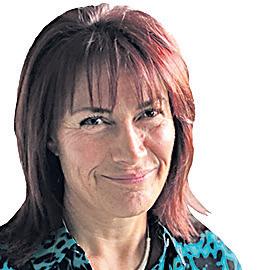
Dear Claire
I’ve had the same job for a long time. Although I’m good at it I’m not happy anymore. It’s time for a change. My new year’s resolution is to get a different type of job in 2023, but I’m not sure where to start.
What do you suggest?
Kim
Dear Kim
Thinking about career change after so long is both exciting
Our identity is often linked to our job so a change means letting go of an old identity and taking on a new one. This takes time. Patience is key as you need to keep things open and not narrow down your possibilities too soon. You are on a journey of exploration and have many possible future selves to discover.
First, do new and di erent ‘work’. Get going on projects that enable you to cultivate your skills, resources and relationships. This might be a di erent assignment as part of your current work, a new part time or consultancy job
Second, start talking with a wider group of people. They will be the source of useful new information, resources and connections.
Finally, reflect on what you discover. Discuss your thinking with people who can understand, question and share their own experiences. Resource can work with you to identify ideas for active experimentation, contacts for networking and provide a space for reflection, enabling you to make that change, reinventing yourself with confidence. Call us on 020 8346 4000 or visit www. resource-centre.org to speak to your own dedicated adviser.

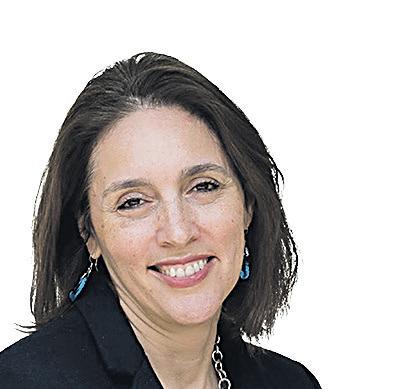
My daughter has just had her first baby – my first grandchild – Isabella. The hospital have told her she’s deaf. There is no deafness in our family, so I really find it difficult to believe. My daughter is refusing to talk about it all. What can I do?
Rosalind
Dear RosalindFirst, mazeltov. And to baby Isabella, a big warm welcome to the world!
This is a joyful and also very di cult emotional time for all of your family. There is lots of help here for you.
Jody, our family services worker, has years of experience and a wealth of knowledge. She will provide a listening ear and she will understand.
She will provide emotional and practical support right through, from this early diagnosis stage, helping to guide you, and all your family, through how to adjust, how to communicate well with Isabella, to critical decisions about everything from possible medical interventions, such as cochlear
implants, to the most suitable nurseries, to schooling … and, later, university.
We are here for you, now, and for as long as you like.
In time, when your daughter is ready, we will be there for her too.
Every family who makes this call says it’s such a relief to be able to talk to someone who understands, who has been in the same situation, who can put them in touch with other families who have received the same ‘bolt out of the blue’
and have felt similarly shocked.
We can also o er practical, positive help, instantly.
Please, don’t hesitate, call Jody at JDA on 020 8446 0502 – it will help.
Email: editorial@jewishnews.co.uk
•
TREVOR GEE
Qualifications:
• Managing Director, consultant specialists in affordable family health insurance.
•
•
•
JOE OZER
Qualifications:
• Executive director for the United Kingdom at DCI (Intl) Ltd

• Worked in finance for more than 20 years
• Specialists in distribution and promotion of Israel Bonds

Especially in times like these. We can help you. Like we’ve helped 100’s of enterprises like yours. Let’s talk. Call 020 8429 8800 or email “book” to businessplan@sobellrhodes.co.uk for a 30 minute business plan discovery session. The first 30 responders will receive a free, printed copy of “HOW TO GROW YOUR BUSINESS WITH SIMPLE STUFF THAT WORKS ” worth £45.
Start looking forward to a more resilient, flexible, profitable business. Elstree. London. Watford.
•
•
• Are you worried that over 7 million NHS patients are still waiting…..
Patient Health are completely client focused. And so if one price doesn't work, we keep on searching for you. Have it for when you will need it, which can be at any time 020 3146 3444 We listen, We explain, We arrange
Call now: Trevor Gee 020 3146 3444 Free advice Free quotations No fees
Qualifications:
• Jewellery manufacturer since 1980s.
• Expert in the manufacture and supply of diamond jewellery, wedding rings and general jewellery.
• Specialist in supply of diamonds to the public at trade prices.
JEWELLERY CAVE LTD 020 8446 8538 www.jewellerycave.co.uk jonathan@jewellerycave.co.uk
Qualifications:
PATIENT HEALTH 020 3146 3444/5/6 www.patienthealth.co.uk trevor.gee@patienthealth.co.uk Making Health Cover

• Lawyer with over 20 years’ experience in will drafting and trust and estate administration. Last 14 years at KKL Executor and Trustee Company.
• In close contact with clients to ensure all legal and pastoral needs are cared for.
• Member of the Society of Trust and Estate Practitioners.
KKL EXECUTOR AND TRUSTEE COMPANY 020 8732 6101 www.kkl.org.uk enquiries@kkl.org.uk


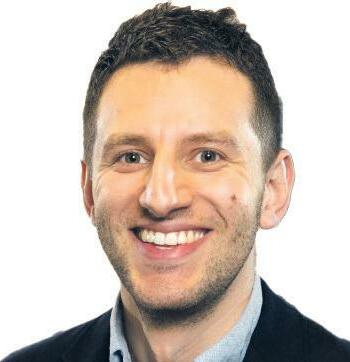


STEPHEN MORRIS
Qualifications:
• Managing Director of Stephen Morris Shipping Ltd.
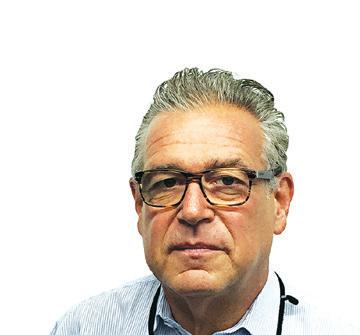
• 45 years’ experience in shipping household and personal effects.
• Chosen mover for four royal families and three UK prime ministers.
• Offering proven quality specialist advice for moving anyone across the world or round the corner.
STEPHEN MORRIS SHIPPING LTD 020 8832 2222 www.shipsms.co.uk stephen@shipsms.co.uk
DEVELOPMENT COMPANY FOR ISRAEL 020 3936 2712 www.israelbondsintl.com joe.ozer@israelbondsintl.com

ADAM LOVATT
Qualifications:
• Lawyer with more than 11 years of experience working in the legal sector. Specialist in corporate, commercial, media, sport and start-ups.

• Master’s degree in Intellectual Property Law from the University of London.
• Non-Executive Director of various companies advising on all governance matters.
LOVATT LEGAL LIMITED 07753 802 804 adam@lovattlegal.co.uk

SUE CIPIN
Qualifications:
• 20 years+ hands-on experience, leading JDA in significant growth and development.
• Understanding of the impact of deafness on people, including children, at all stages.
• Extensive services for people affected by hearing loss/tinnitus.



• Technology room with expert advice on and facilities to try out the latest equipment. Hearing aid advice, support and maintenance.
JEWISH DEAF ASSOCIATION 020 8446 0502 www.jdeaf.org.uk mail@jdeaf.org.uk
LOUISE LEACH
Qualifications:
• Professional choreographer qualified in dance, drama and Zumba (ZIN, ISTD

& LAMDA), gaining an honours degree at Birmingham University.
• Former contestant on ITV’s Popstars, reaching bootcamp with Myleene Klass, Suzanne Shaw and Kym Marsh.
• Set up Dancing with Louise 19 years ago.
DANCING WITH LOUISE 075 0621 7833 www.dancingwithlouise.co.uk Info@dancingwithlouise.com
JACOB BERNSTEIN
Qualifications:
• A member of the APCC, specialising in financial services compliance for:
• Mortgage, protection and general insurance intermediaries;
• Lenders, credit brokers, debt counsellors and debt managers;
• Alternative Investment Fund managers;
• E-Money, payment services, PISP, AISP and grant-making charities.
RICHDALE CONSULTANTS LTD 020 7781 8019 www.richdale.co.uk jacob@richdale.co.uk
LEE SHMUEL GOLDFARB
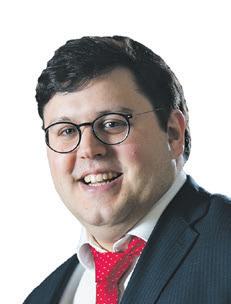



Qualifications:
• Hands-on service, with full and personalised support for international transfers.
• Get the most out of your currency exchange with regards to pension income, when purchasing your first house in Israel or benefitting from an inheritance from aboard.
• UK leader in financial exchange and partner to brands such as St James Place and Hargreaves Lansdown with industry-beating Trustpilot score.
CURRENCIES DIRECT 0786 0595 890 / 0207 847 9400 www.currenciesdirect.com/jn lee.goldfarb@currenciesdirect.com
Qualifications:
• FCIPD Chartered HR Professional
• 25 years in HR and Business Management.
• Mediator, Business Coach, Trainer, Author and Speaker
• Supporting businesses and charities with the hiring, managing, inspiring and firing of their staff
DOHR LTD 020 8088 8958 www.dohr.co.uk donna@dohr.co.uk

DOV NEWMARK

Qualifications:
• Director of UK Aliyah for Nefesh B’Nefesh, an organisation that helps facilitate aliyah from the UK.
• Conducts monthly seminars and personal aliyah meetings in London.
• An expert in working together with clients to help plan a successful aliyah.
NEFESH B’NEFESH 0800 075 7200 www.nbn.org.il dov@nbn.org.il

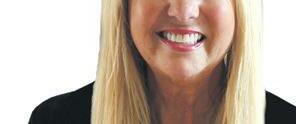

Qualifications:
• Qualification: 40 years experience as a matrimonial and divorce solicitor and mediator, specialising in all aspects of family matrimonial law, including:
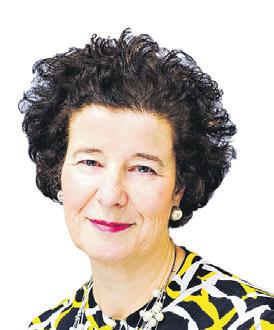

• Divorce, pre/post-nuptial agreements, cohabitation agreements, domestic violence, children’s cases, grandparents’ rights to see grandchildren, pet disputes, family disputes.
• Frequent broadcaster on national and International radio and television.
LLOYD PLATT & COMPANY SOLICITORS 020 8343 2998 www.divorcesolicitors.com lloydplatt@divorcesolicitors.com

ADAM SHELLEY
Qualifications:
• FCCA chartered certified accountant.
• Accounting, taxation and business advisory services.
• Entrepreneurial business specialist including start-up businesses.
• Specialises in charities; Personal tax returns.

• Maurice Wohl Charitable Foundation Volunteer of the Year JVN award.
SOBELL RHODES LLP 020 8429 8800 www.sobellrhodes.co.uk a.shelley@sobellrhodes.co.uk
LISA WIMBORNE
Qualifications:
Able to draw on the charity’s 50 years of experience in enabling people with physical disabilities or impaired vision to live independently, including:
• The provision of specialist accommodation with 24/7 on site support.
• Knowledge of the innovations that empower people and the benefits available.
• Understanding of the impact of a disability diagnosis.
JEWISH BLIND & DISABLED 020 8371 6611 www.jbd.org Lisa@jbd.org If
IAN GREEN
Qualifications:
• Launched Man on a Bike IT consultancy 15 years ago to provide computer support for the home and small businesses.
• Clients range from legal firms in the City to families, small business owners and synagogues.
• More than 18 years’ experience.
MAN ON A BIKE 020 8731 6171 www.manonabike.co.uk mail@manonabike.co.uk
Qualifications:
• Professional insurance and reinsurance broker. Offering PI/D&O cover, marine and aviation, property owners, ATE insurance, home and contents, fine art, HNW.
• Specialist in insurance and reinsurance disputes, utilising Insurance backed products. (Including non insurance business disputes).
• Ensuring clients do not pay more than required.
RISK RESOLUTIONS 020 3411 4050 www.risk-resolutions.com ashley.prager@risk-resolutions.com
Email: sales@jewishnews.co.uk
Qualifications:
RESOURCE 020 8346 4000 www.resource-centre.org office@resource-centre.org



Qualifications:
• Co-Founder and Technical Director of ADWConnect – a specialist in business telecommunications, serving customers worldwide.
• Independent consultant and supplier of Telephone & Internet services.
• Client satisfaction is at the heart of everything my team and I do, always striving to find the most cost-effective solutions.
ADWCONNECT 0208 089 1111 www.adwconnect.com hello@adwconnect.com
ALIYAH ADVISERLooking for a care home for yourself or a loved one? Then you could do no better than to join us as part of our Springdene family. Unlike other care homes, which are often part of large corporations, we are a family business. And we’re still run by the same family that founded it more than 50 years ago.



New residents at Springdene can be sure of a warm reception. All our homes – Spring Grove in Hampstead, Spring Lane in Muswell Hill and Springview in Enfield – are rated as good by the Care Quality Commission.




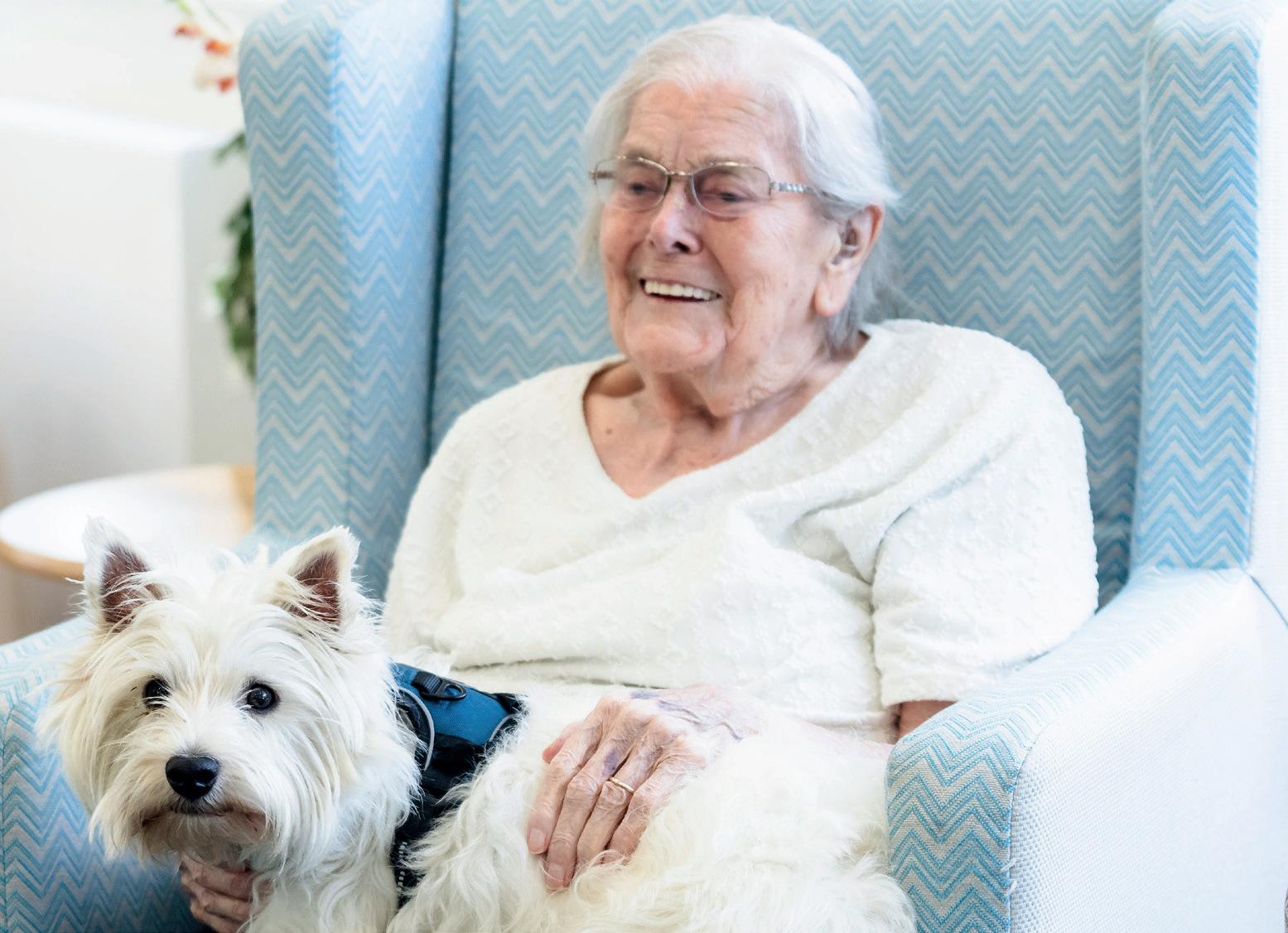
Residents enjoy hotel-style luxury, with their own spacious room, complete with full en-suite facilities, personal telephone and wi-fi. There are three delicious meals a day, with a varied choice of menus.

And there are lots of regular activities, including quizzes, short stories, art competitions and poetry readings, live-streamed concerts and film-showings on a big screen, as well as walks in delightful gardens.
We’ve a great team, o ering wonderful care and everyone is brilliantly looked after.
As our motto says:







Shut (8)
Feel-good nosh (7,4)
Of the best quality (olive oil) (5-6)
Easily moved about (8)
Very keen (reader) (4)
Deviation from a normal route (6)
Urge strongly (6)
Repudiate (7)
Russian monarch (4)
Auction-house assessor (6)
Alight or dismount (3,3)
Emergency exit (4,4)
Watercourse (5)
Abnormal attachment (8)
Impersonation (7)
Given a new life (6)
Onlooker (6)
Parts of a skeleton (5)
Continuous pain (4)
The listed rectangular objects can all be found in the grid. Words may run either forwards or backwards, in a horizontal, vertical or diagonal direction, but always in a straight, unbroken line.
8 Scrooge, 9 Eat, 10 Elope, 11 Seethe, 13 Defect, 16 Ashes, 18 Who, 19 Annoyed, 20 Root, 21 Lie detector.
DOWN: 1 Scheme, 2 Intent, 3 Nestle, 4 Nurse, 5 Twosome, 6 Pretext, 11 Sea wall, 12 Enhance, 13 Dawdle, 14 Floret, 15 Colour, 17 Style












There were 6 million Jewish victims of the Holocaust, murdered by shootings, starvation, slave labour and industrialised killings in death camps. Of these victims, 1.5 million were children, cruelly denied a future, and innocent of any crimes, apart from the perceived one of being born Jewish.
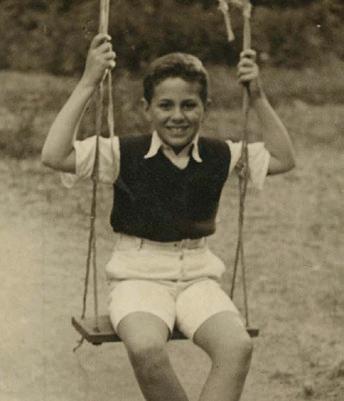

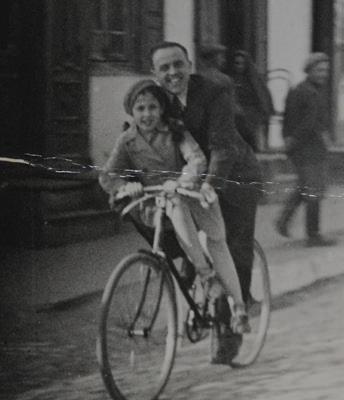

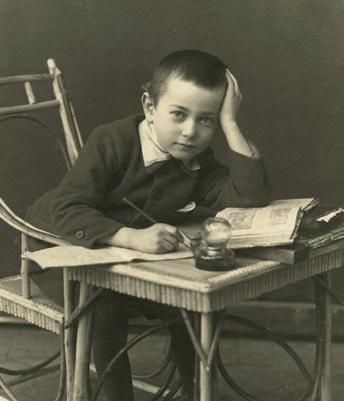
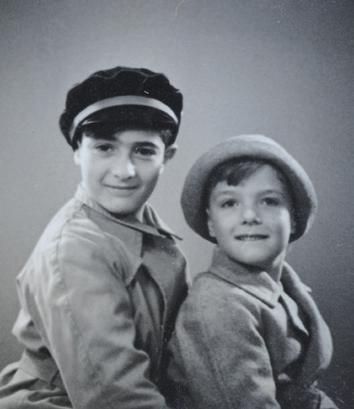
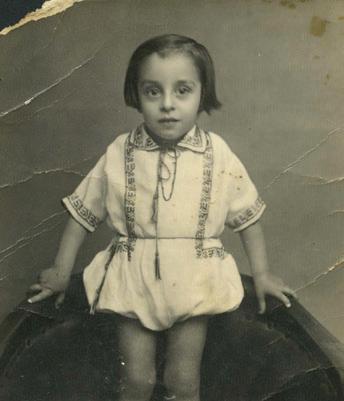
It is Yad Vashem UK’s aim to ensure that each named Jewish victim has a memorial candle lit in their honour on every HMD and Yom HaShoah.




Guardian of the Memory aims to ensure that the victims’ life stories are never forgotten, becoming part of our own treasured family histories.
Please visit: www.guardianofthememory.org



to become a Guardian of the Memory of one victim
ensure they will NEVER be FORGOTTEN nor their EXISTENCE DENIED.





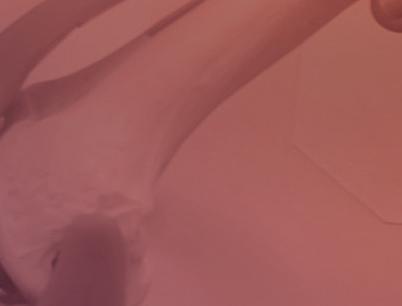






















































Student years are among the most challenging for young Jews. It’s often the first time they’re away from home meeting people and ideas that are unfamiliar. It’s unnerving, it’s challenging, it’s threatening, especially today with the amount of anti-Israel activity on campus.



















